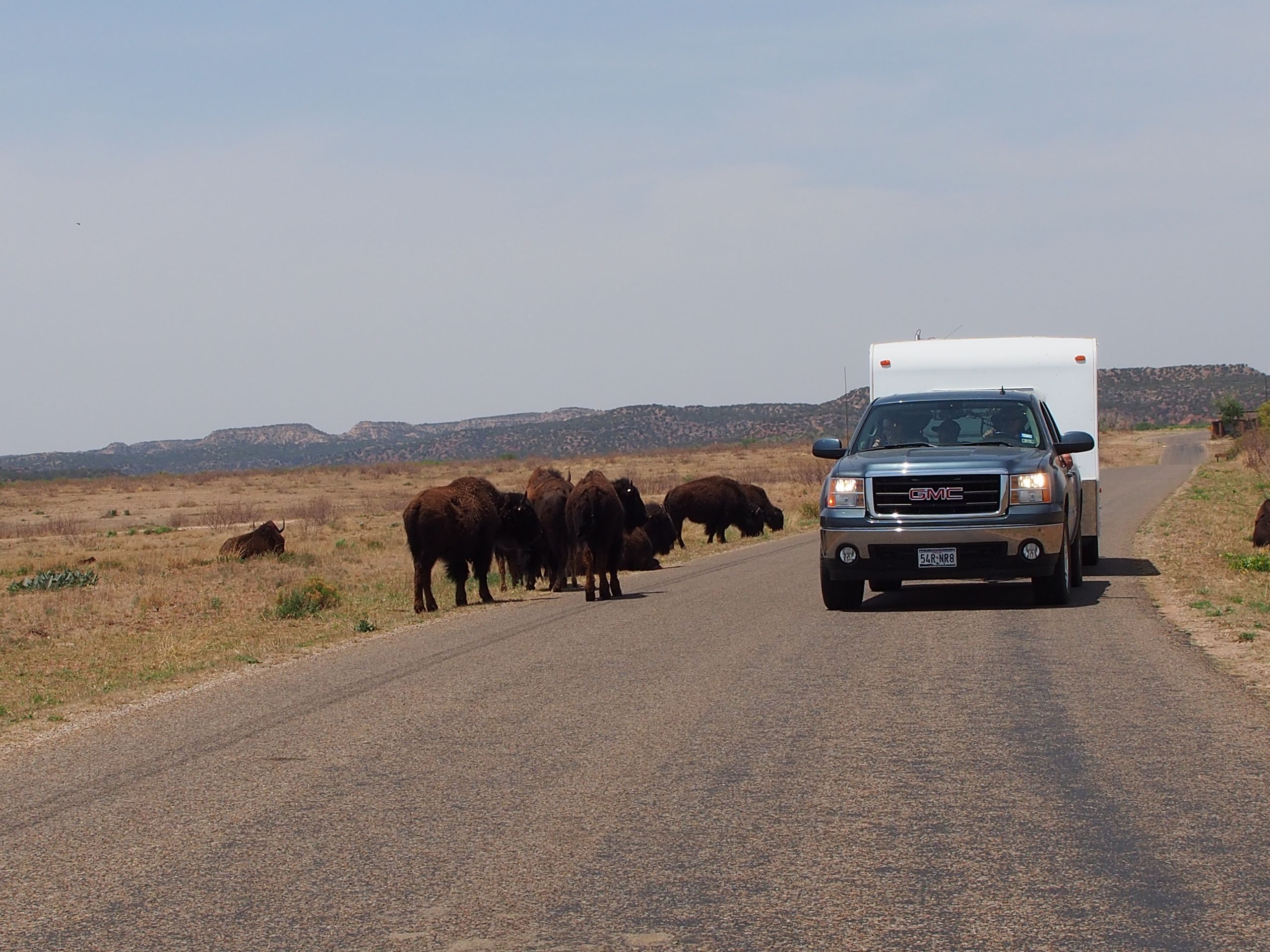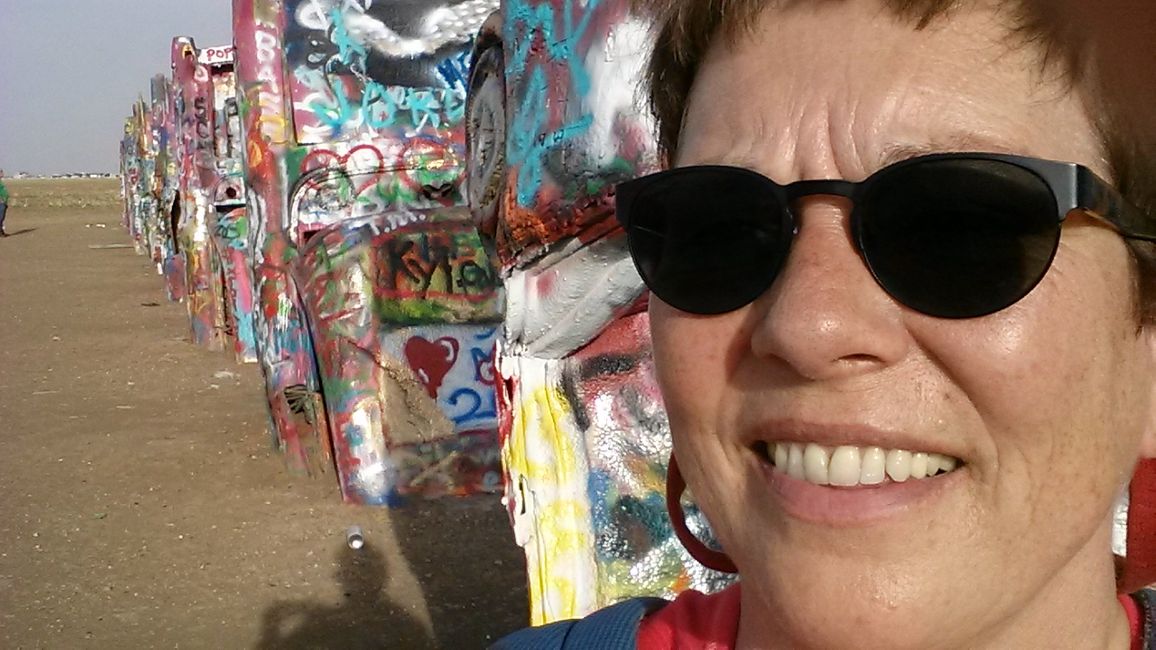
TEXAS - Ein Monat bei Cowboys, Astronauten und Ölbaronen
vakantio.de/texas-ein-monat-bei-den-cowboys
Sunday Houses, Country Music in Luckenbach & Beer in Gruene
प्रकाशित: 09.02.2021
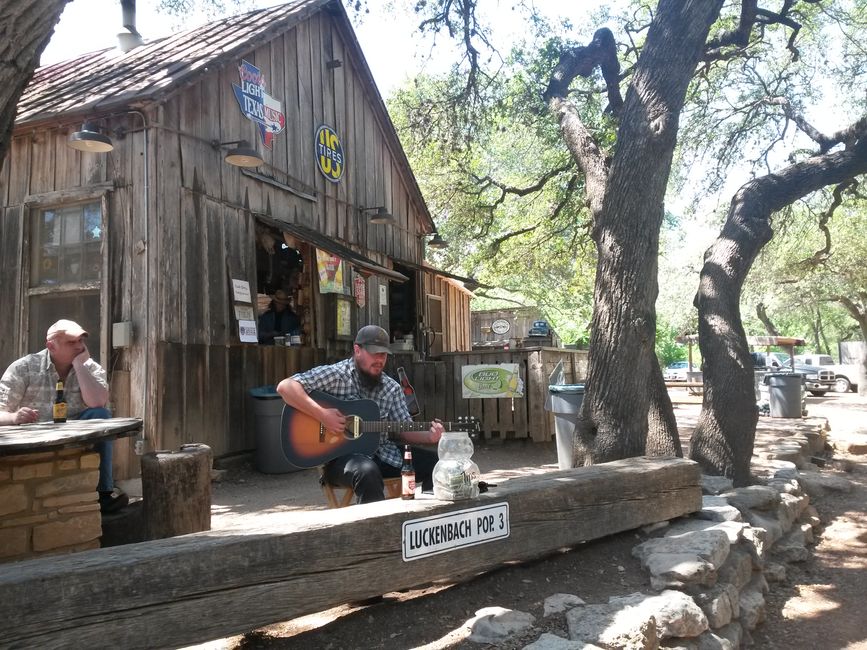
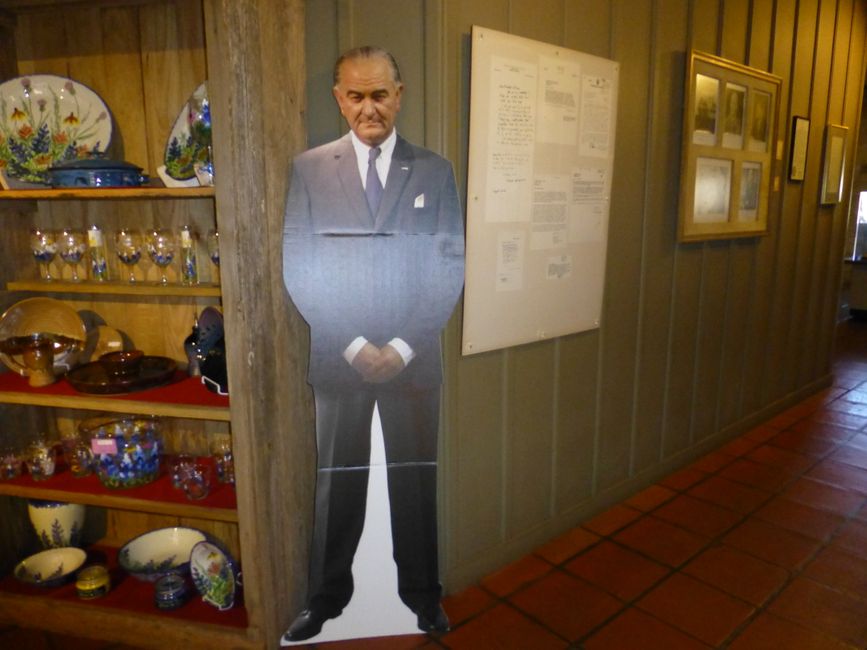
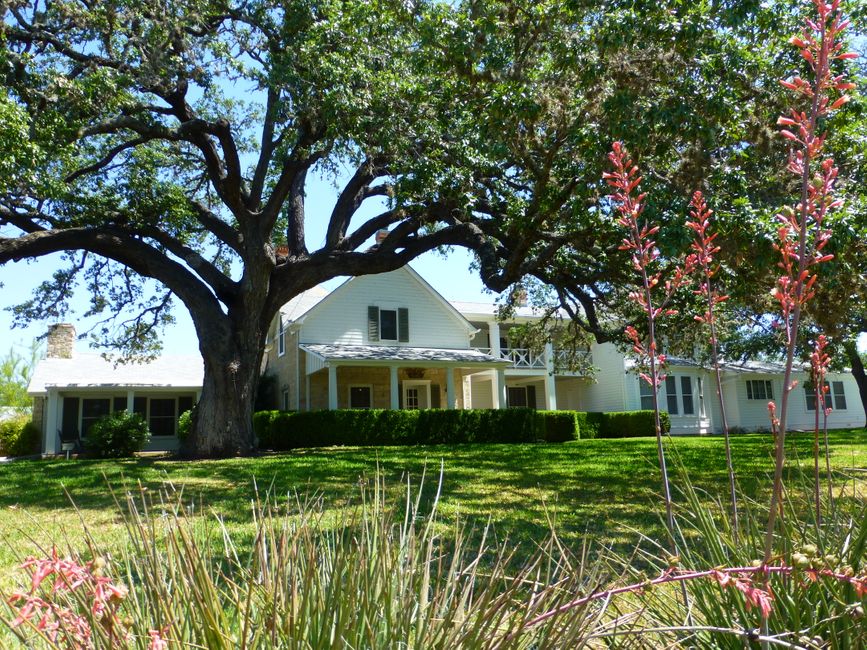
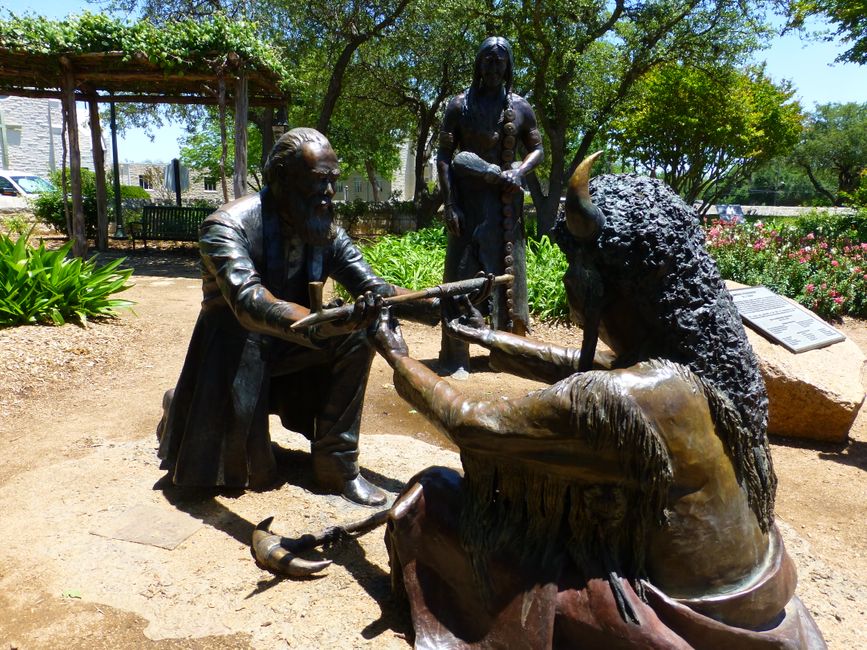
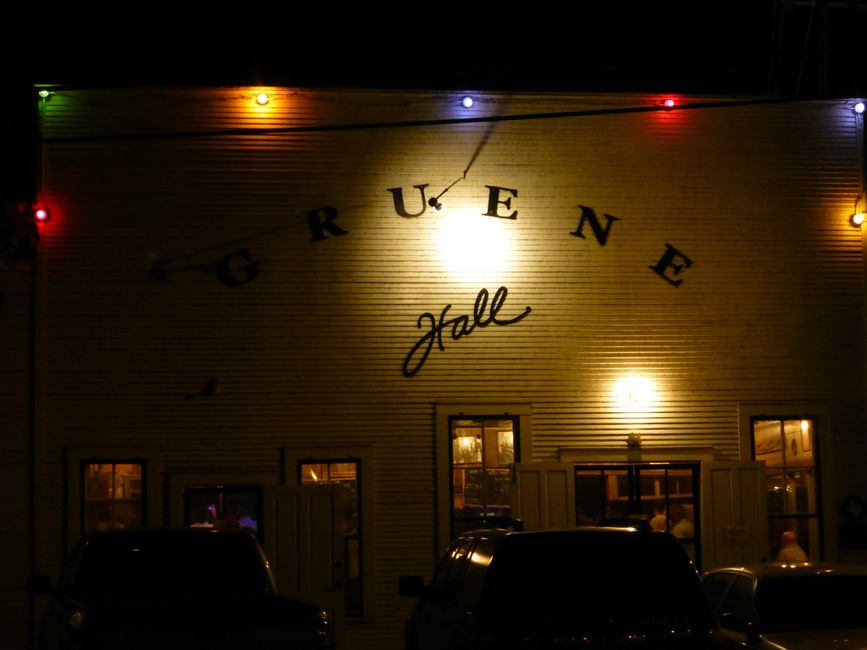
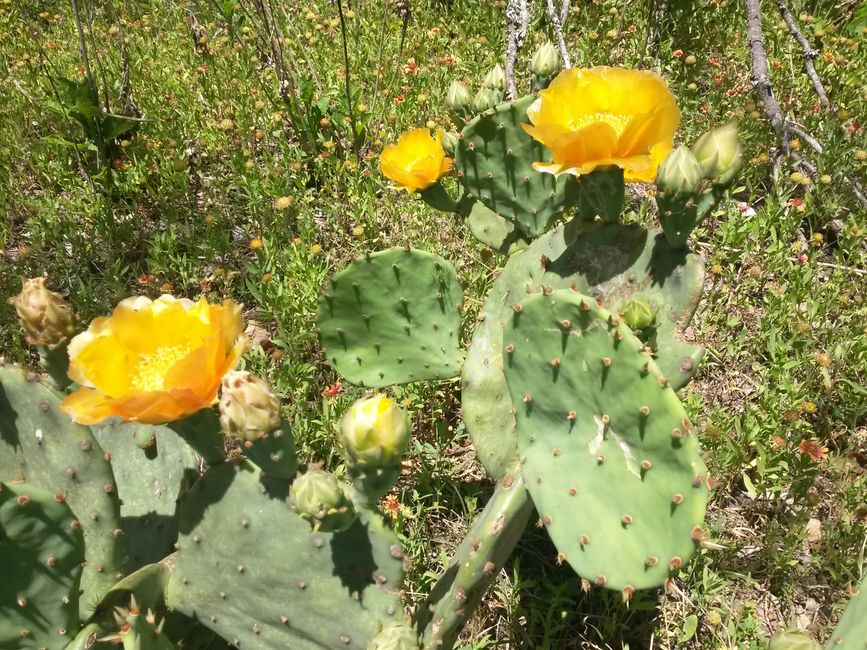
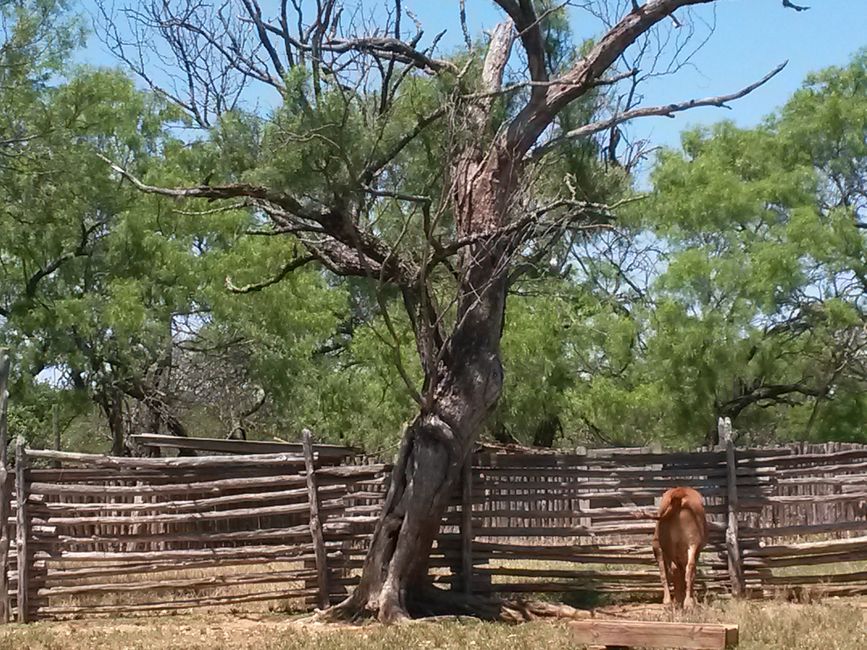
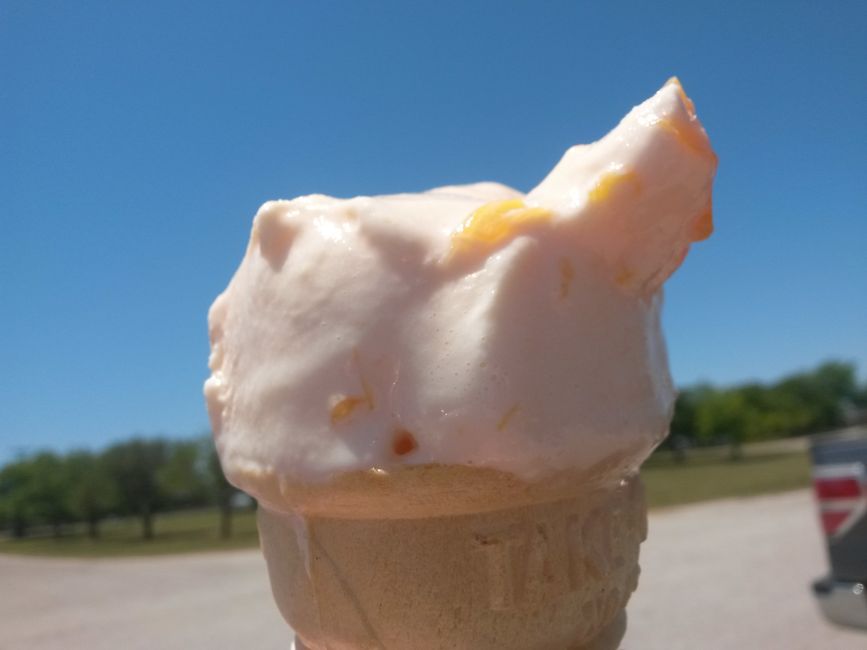
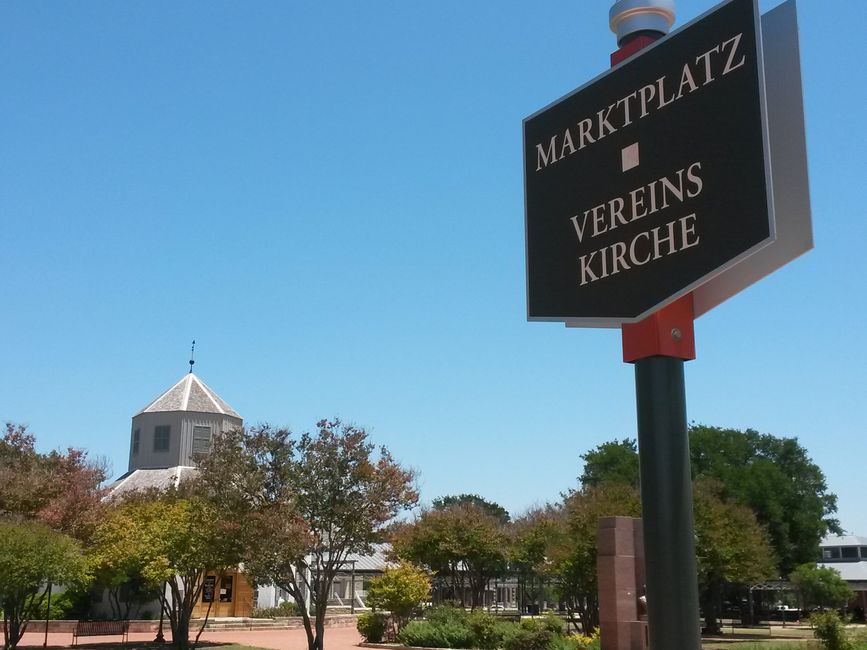
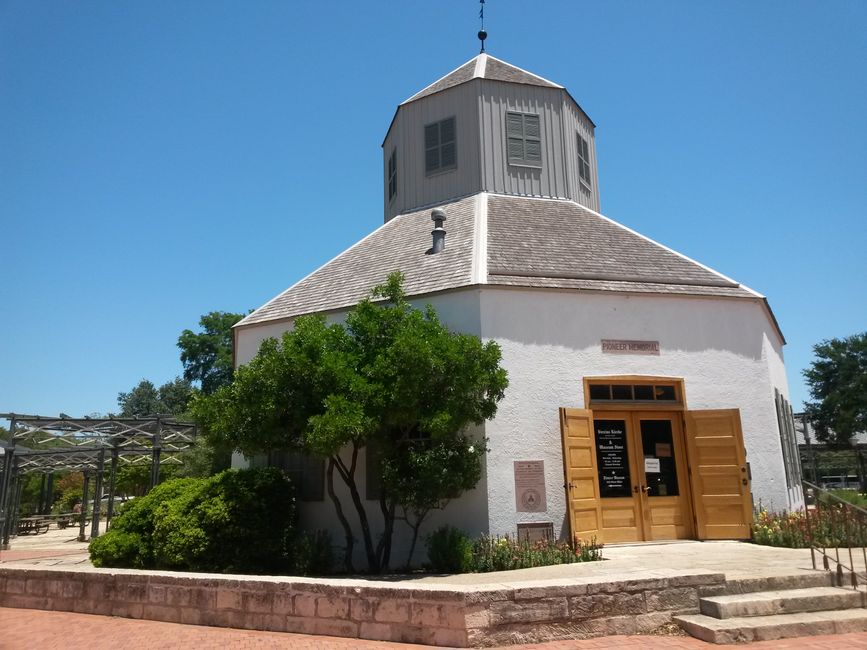
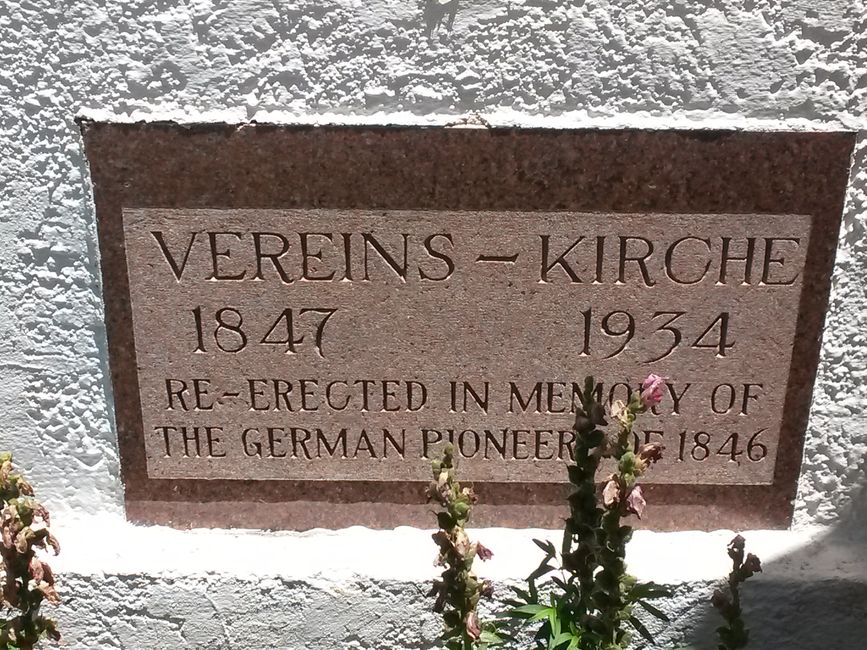
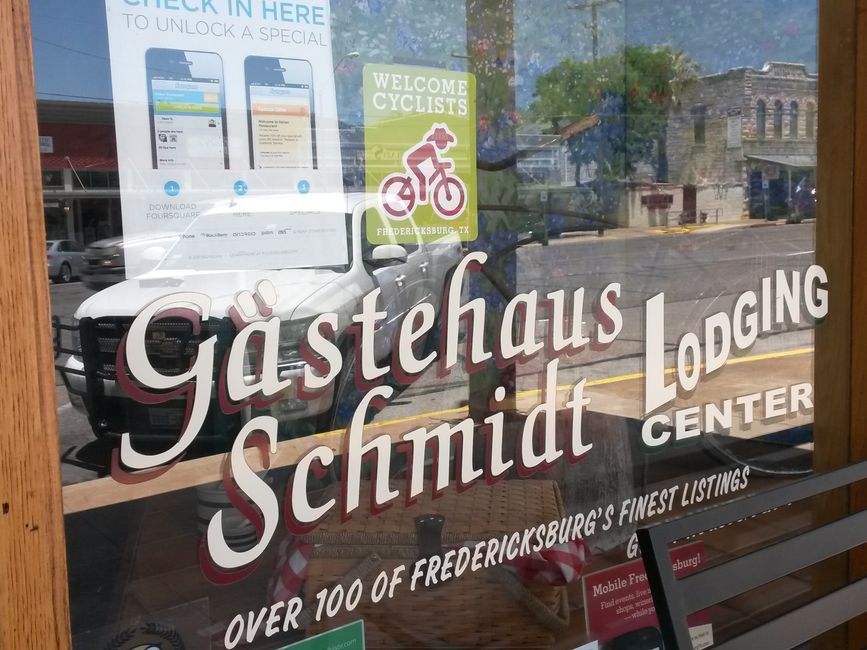
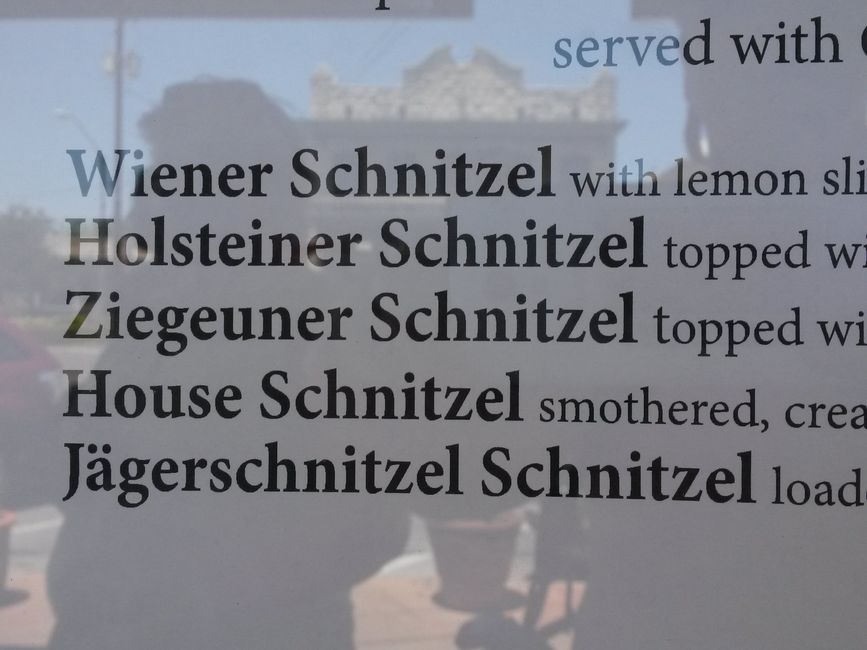
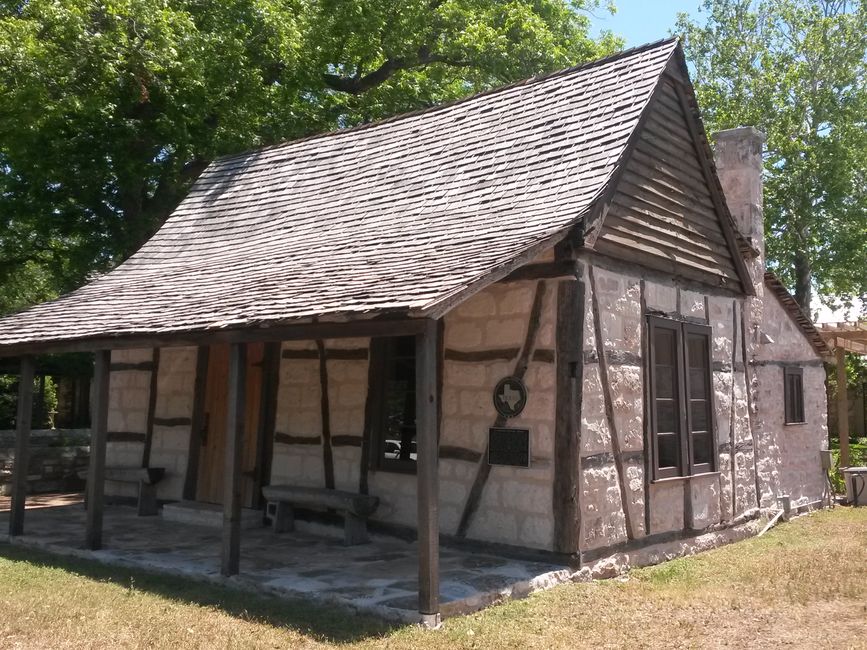
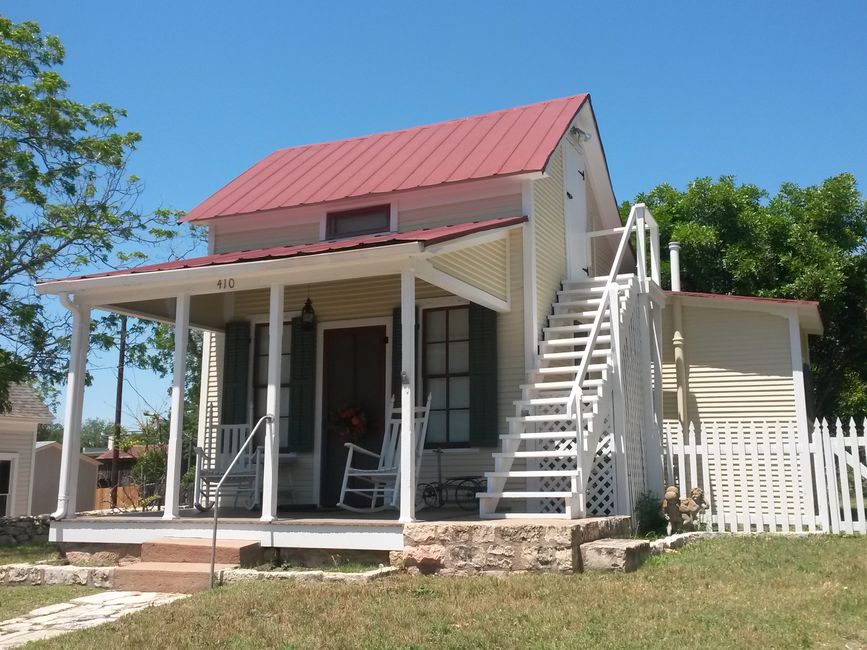
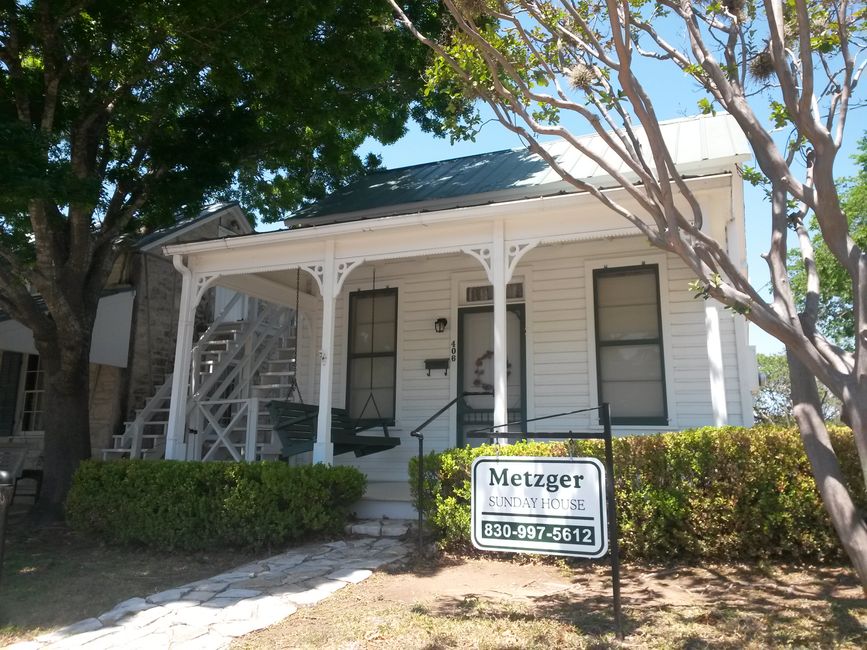
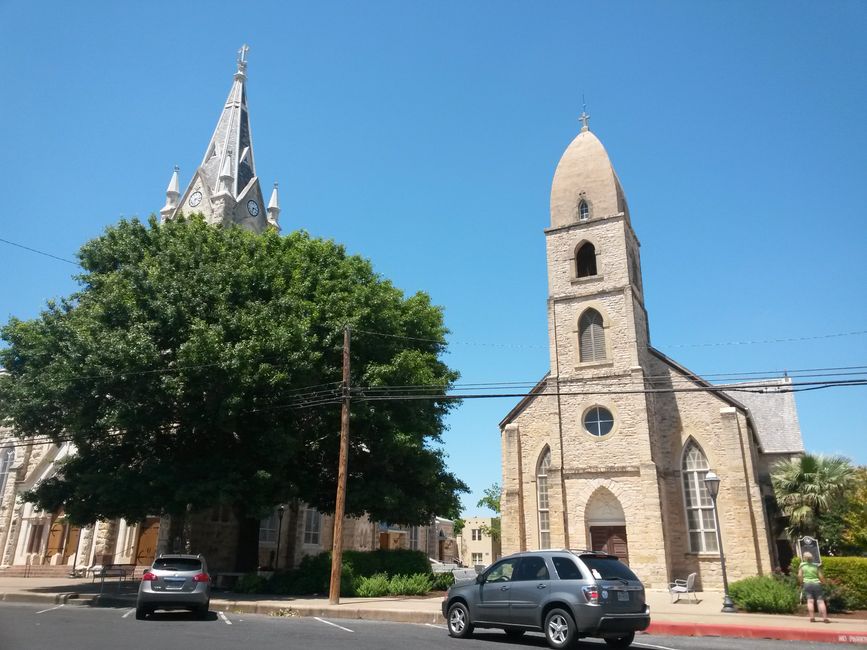
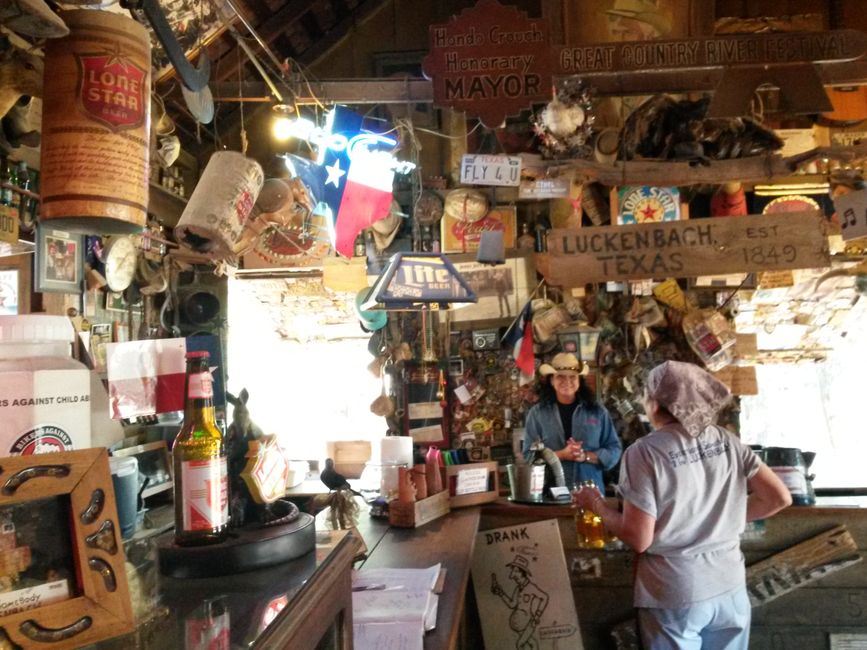
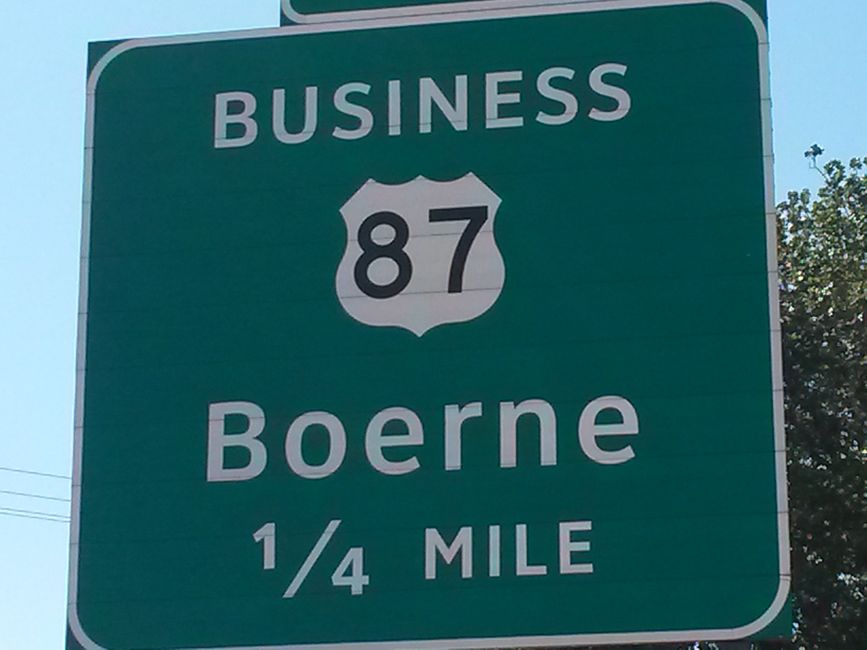
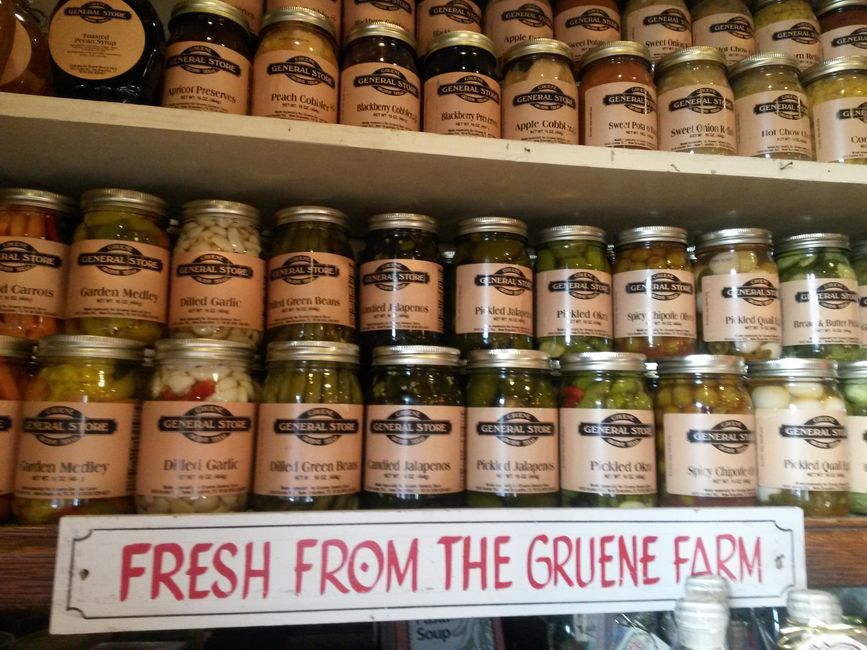
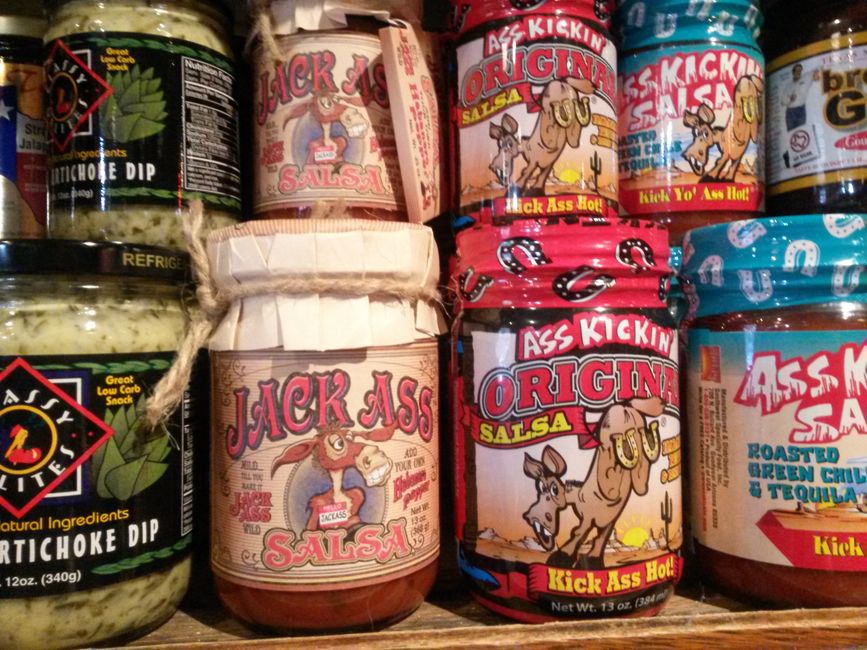
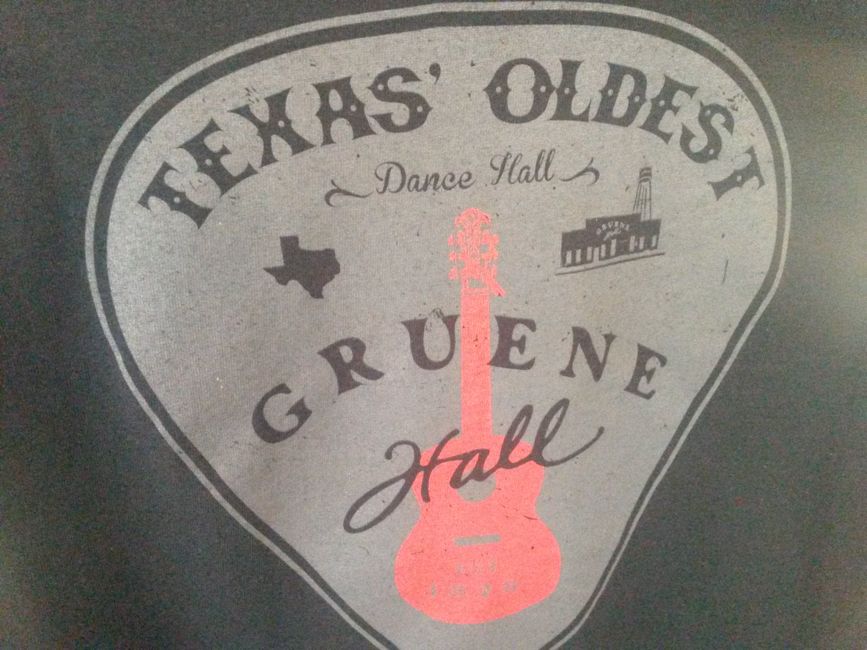
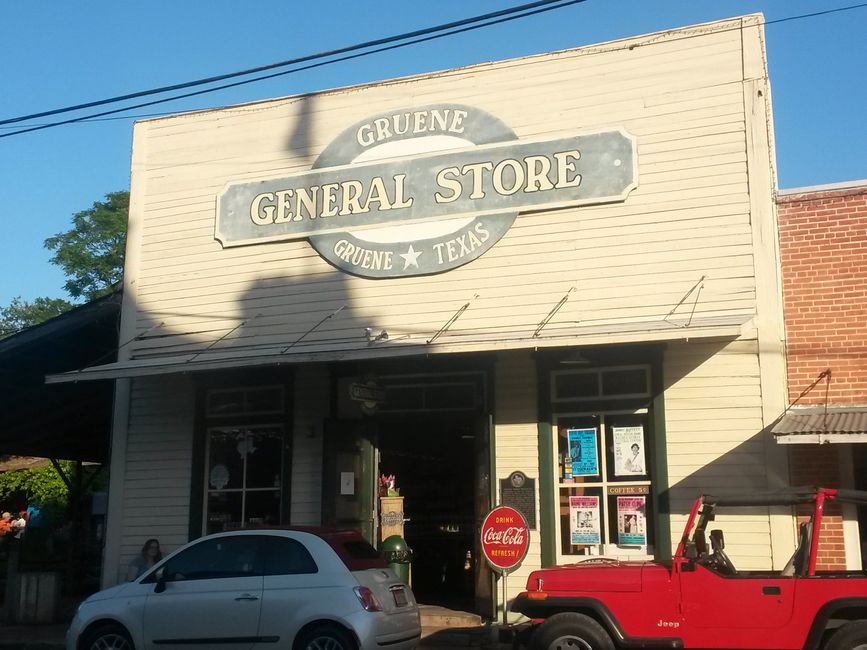
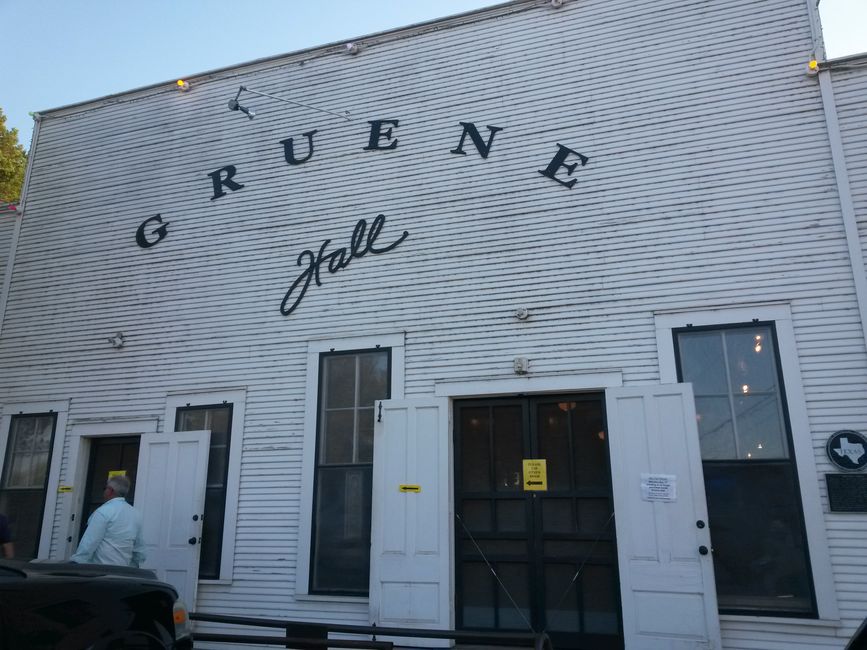
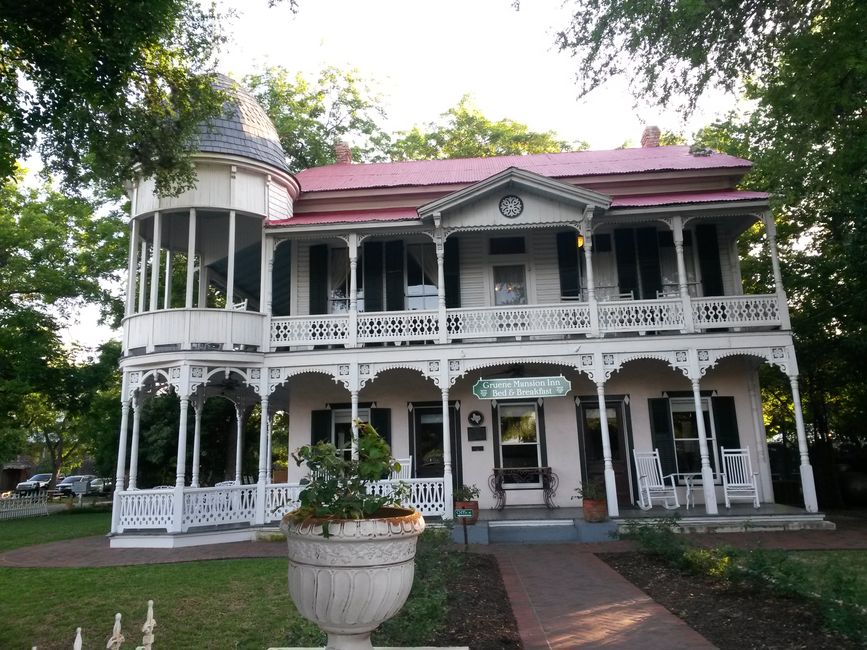
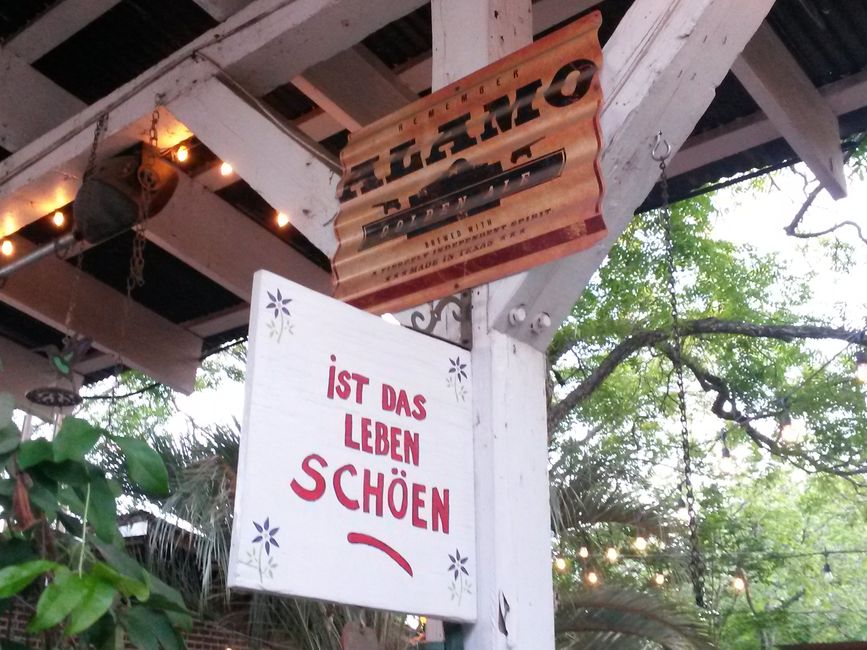
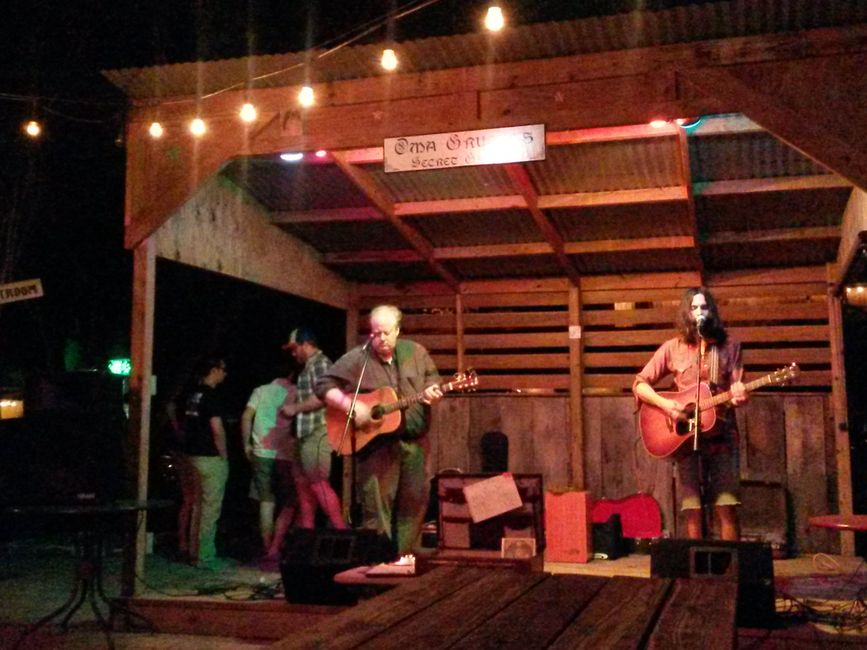
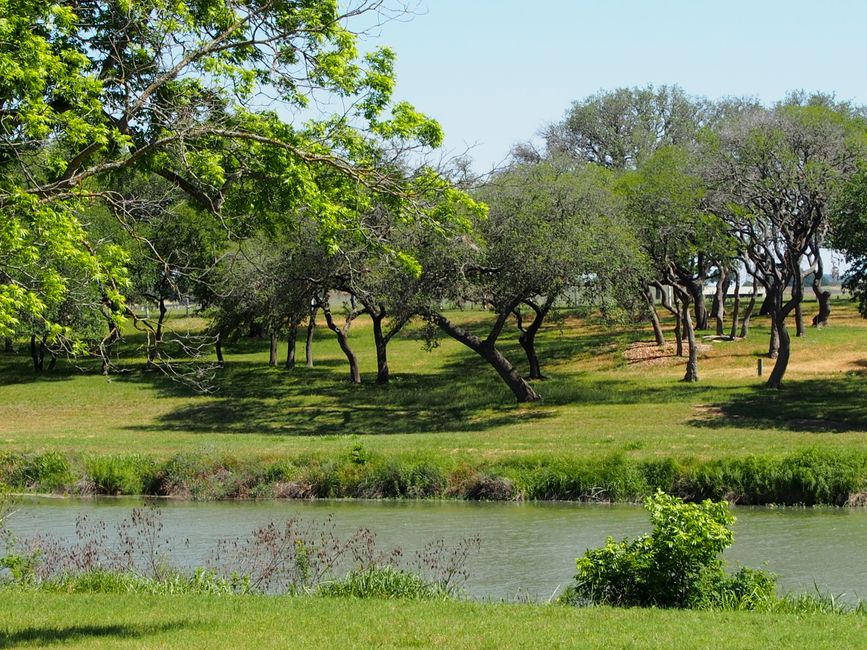
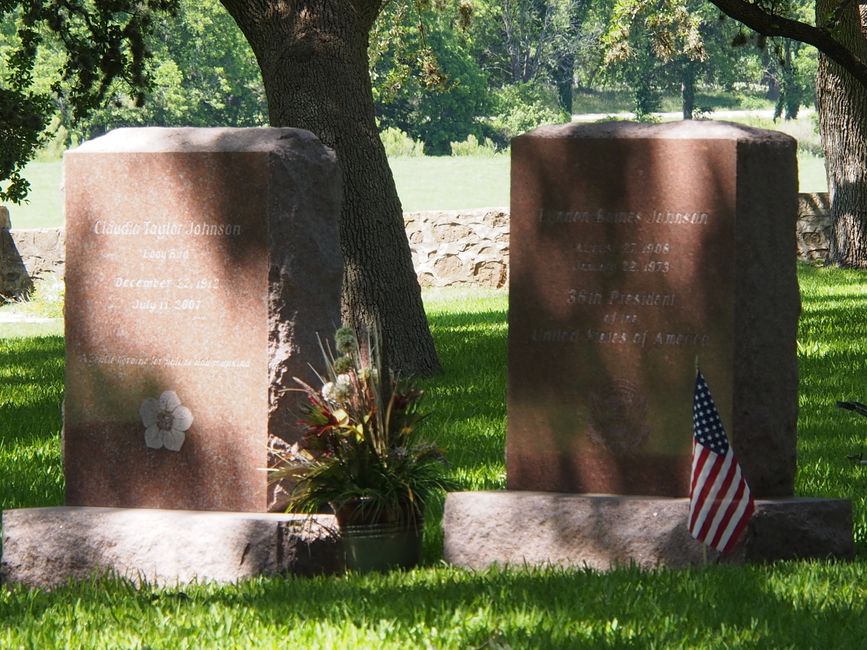
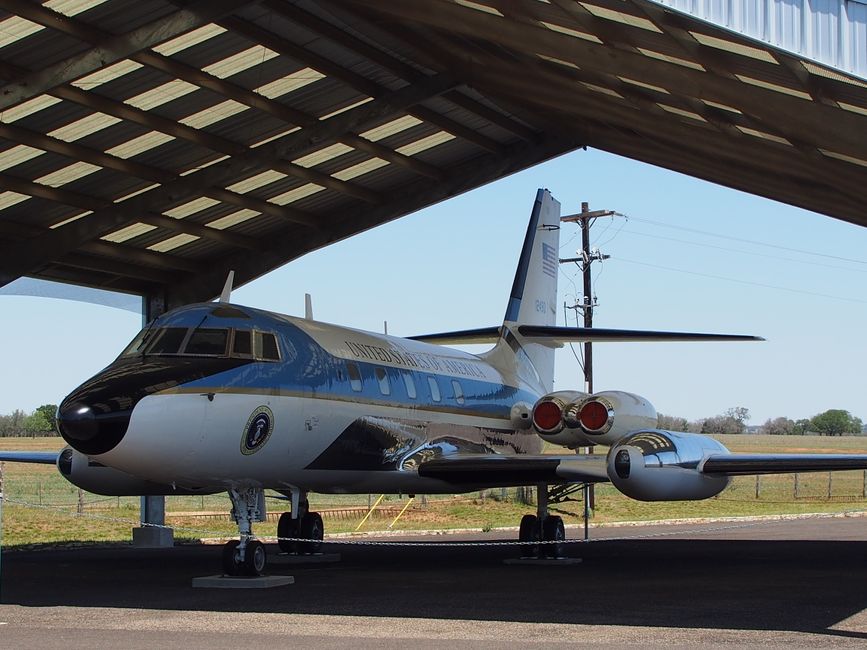
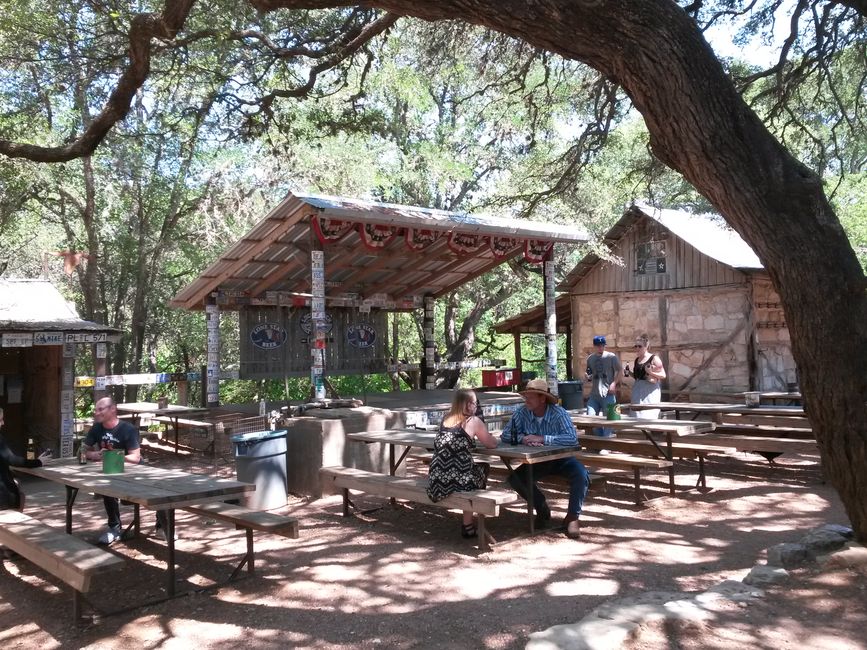
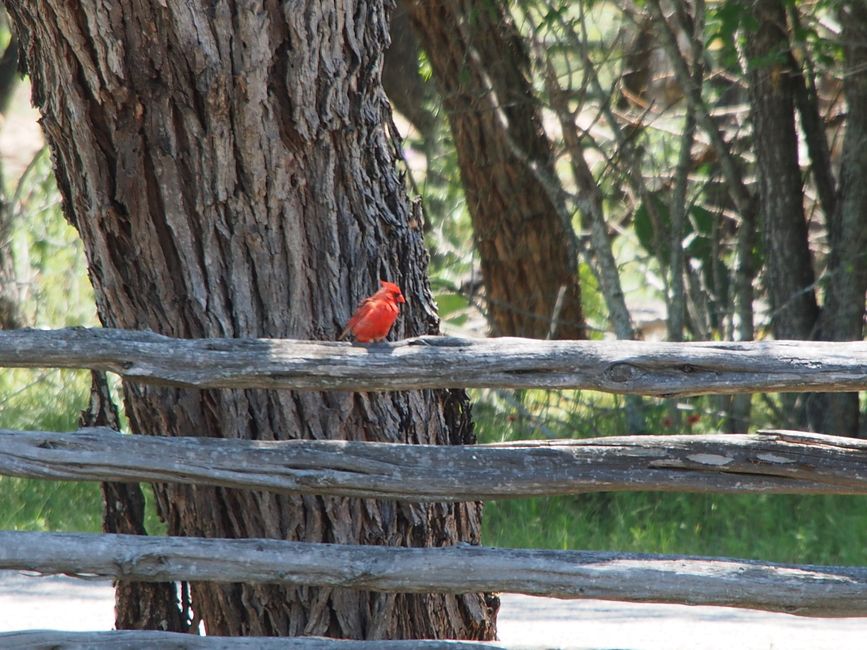
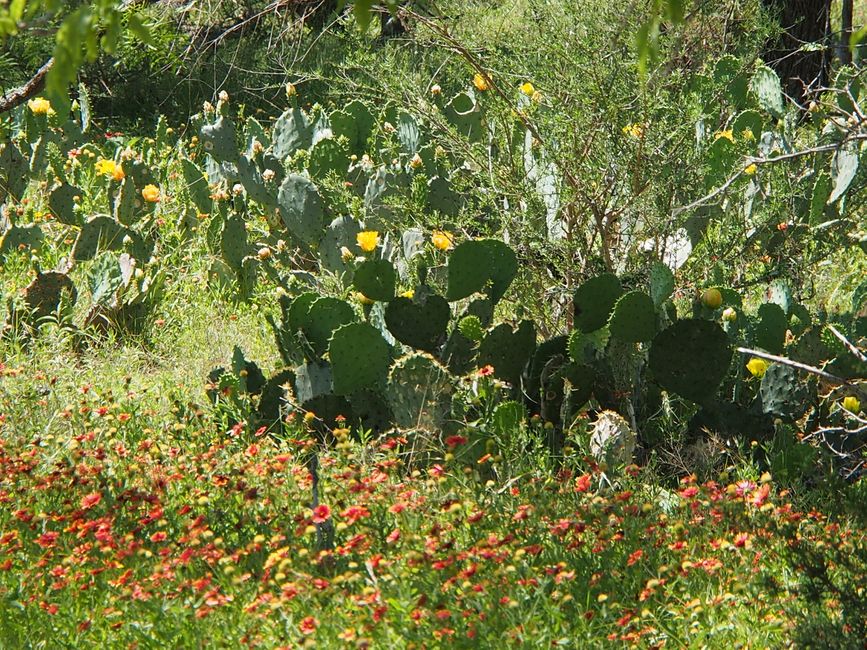
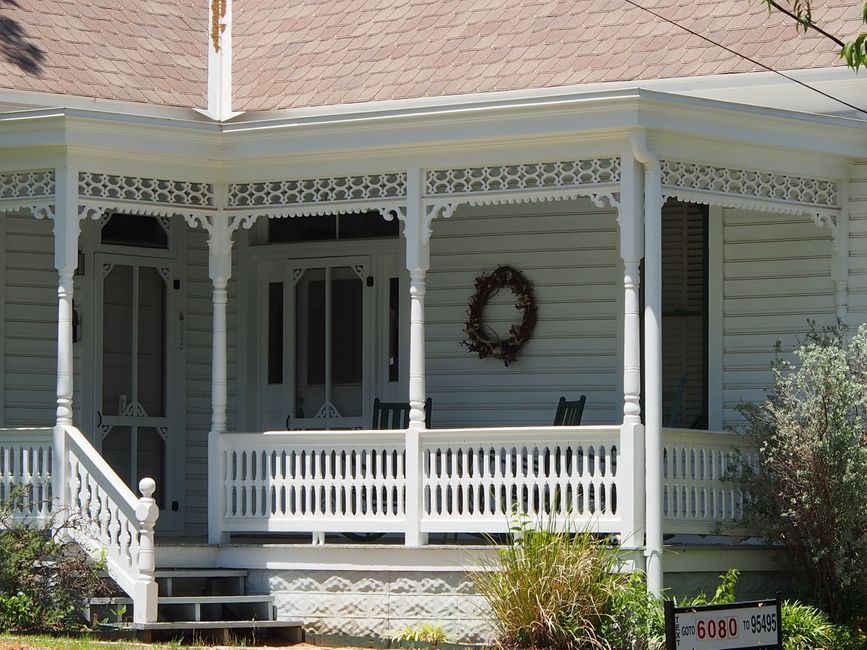
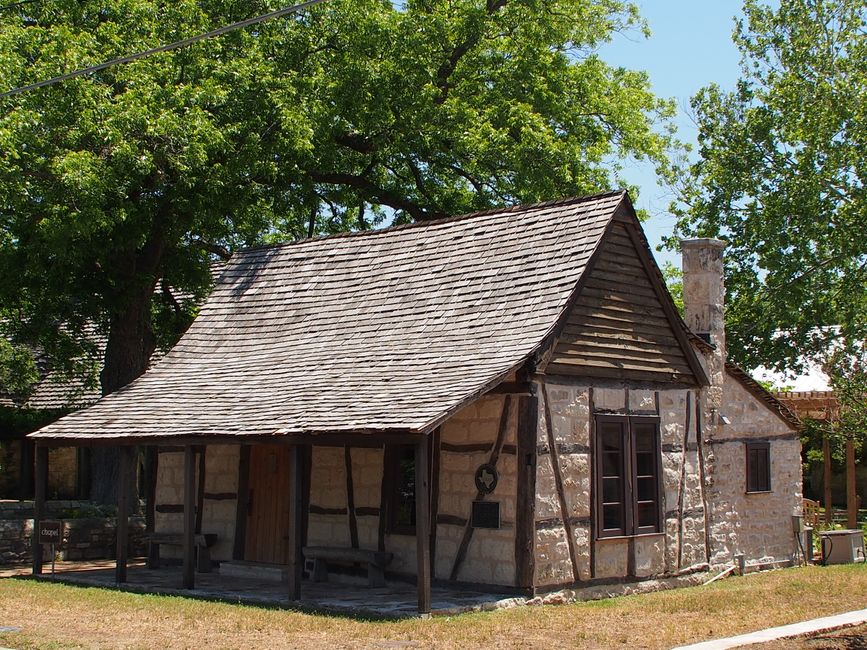
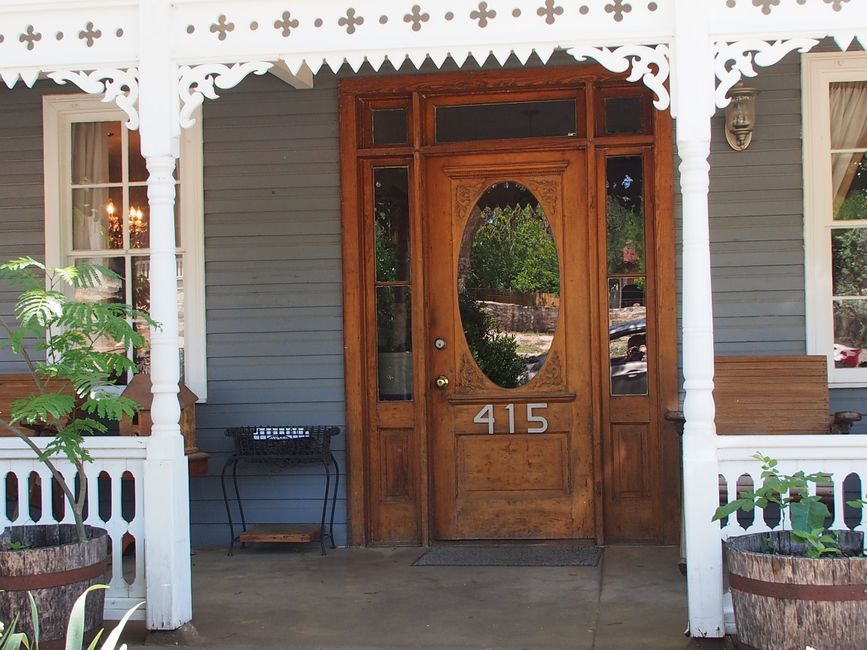
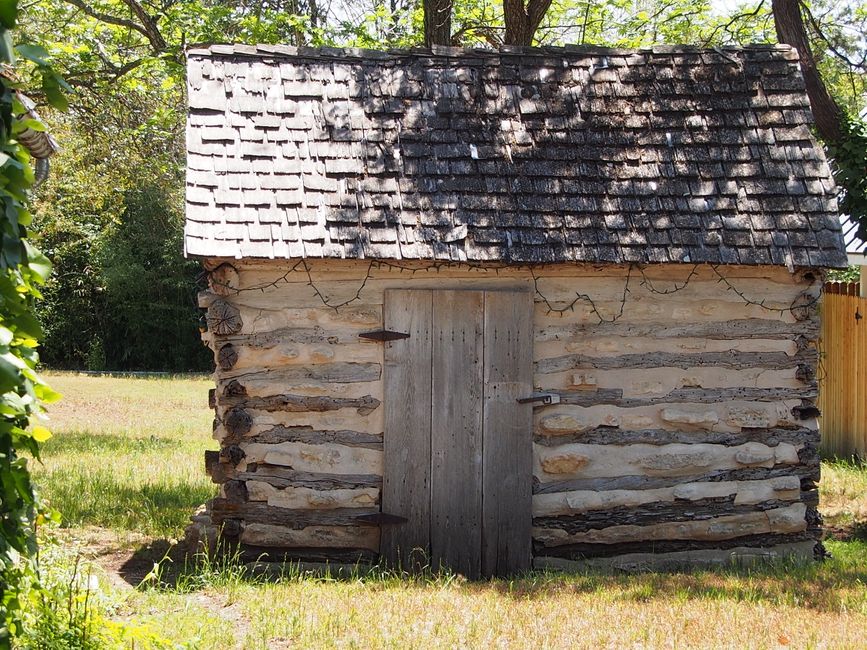
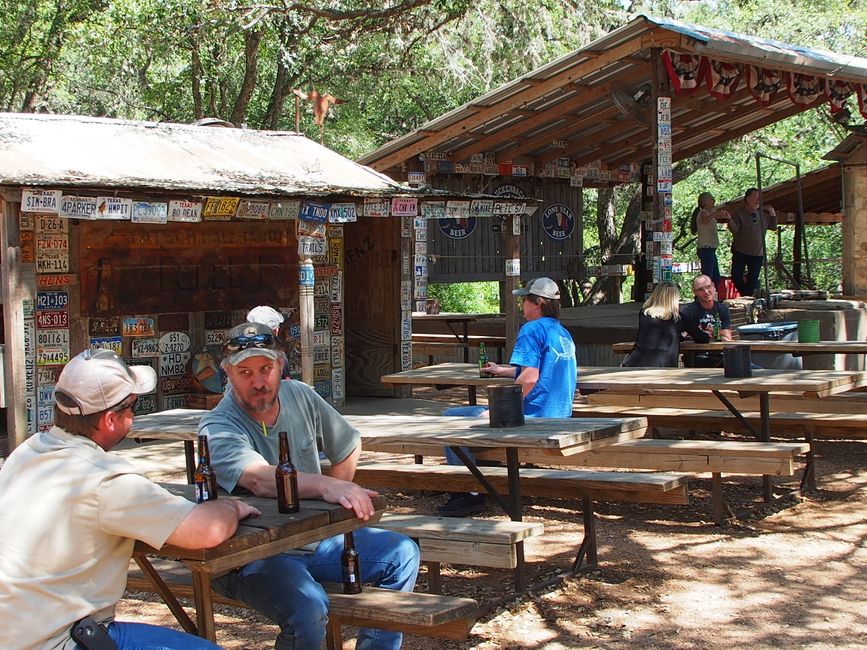
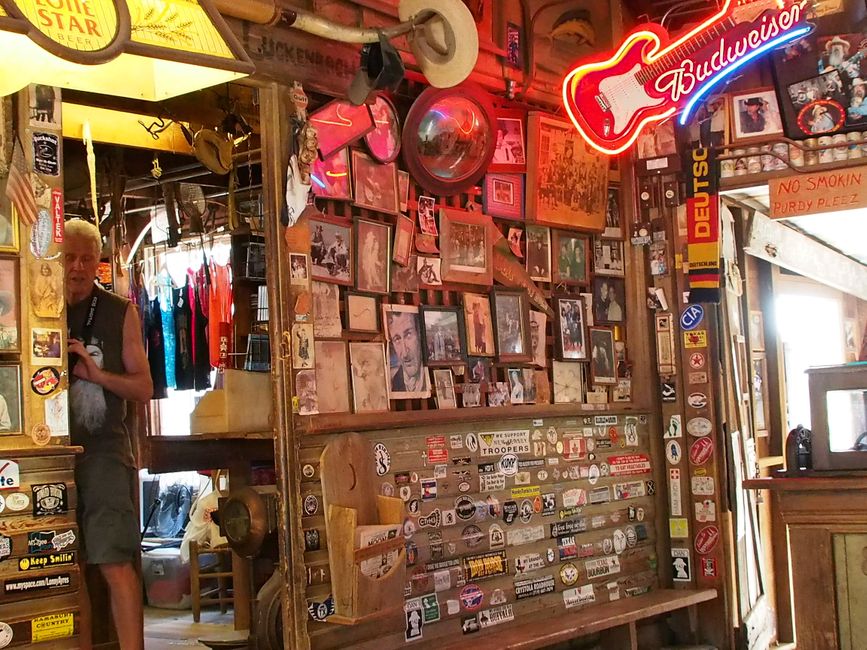
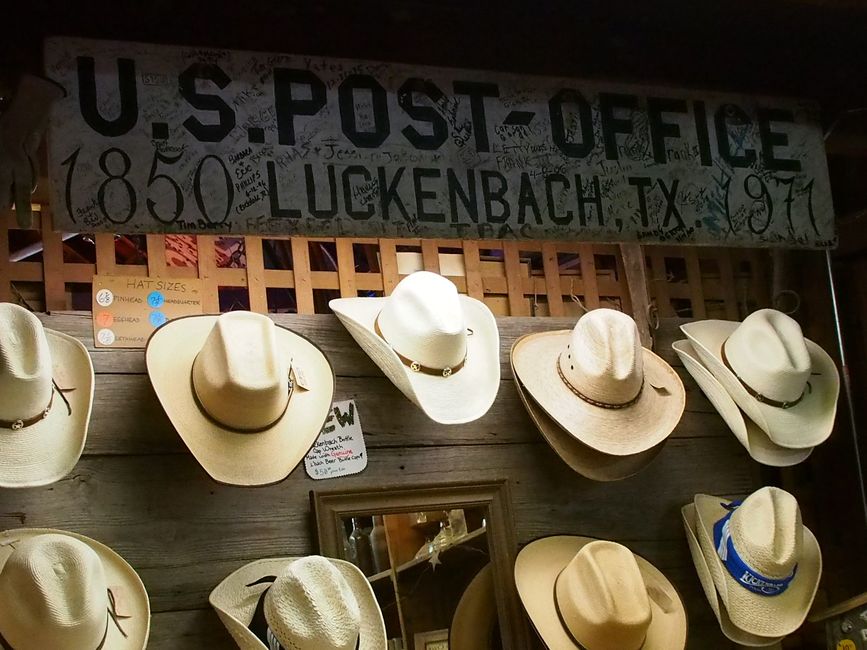
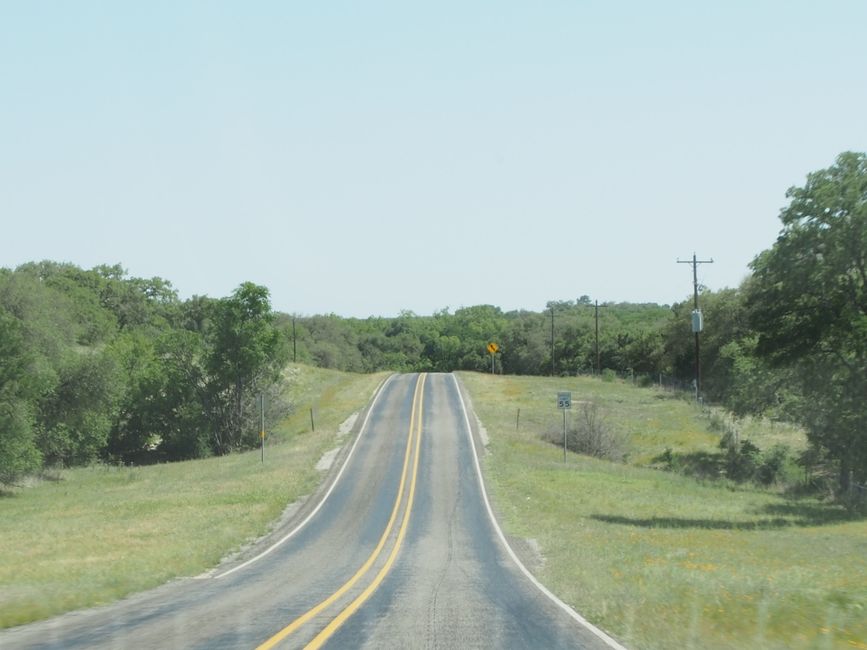
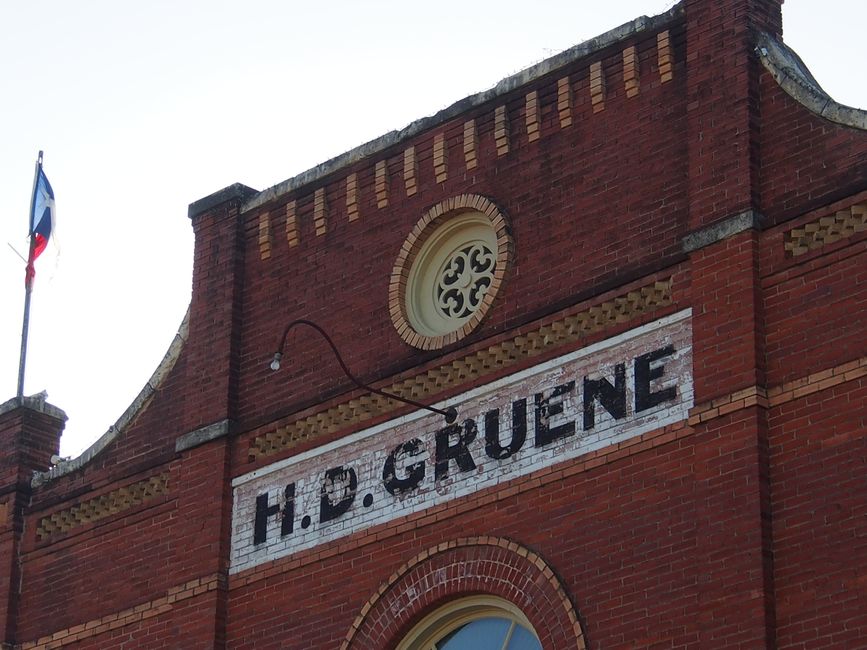
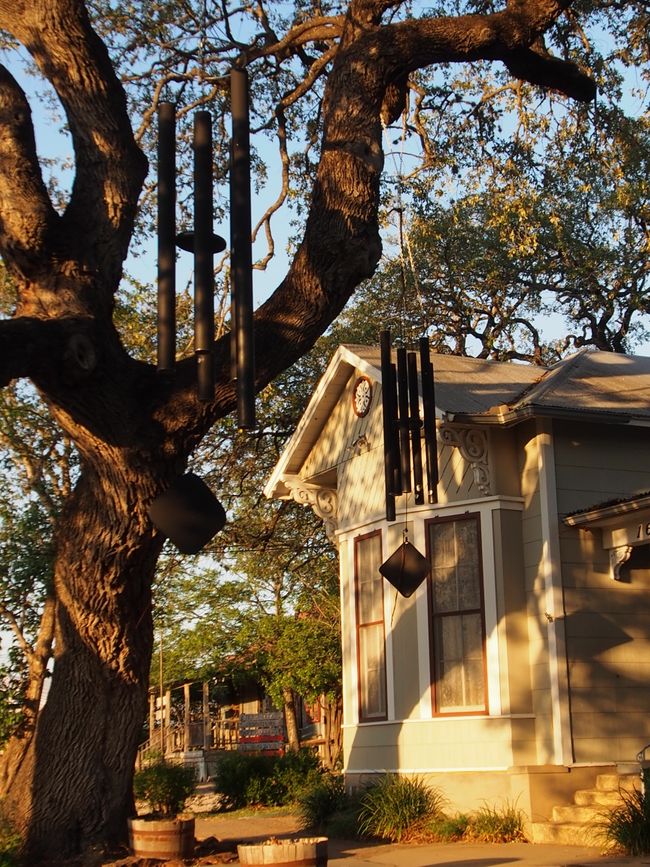
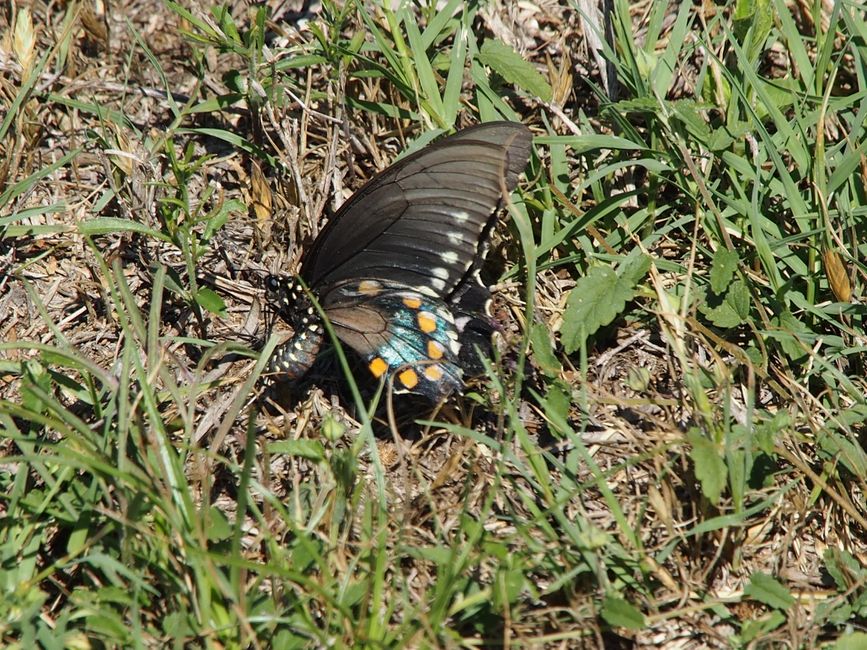
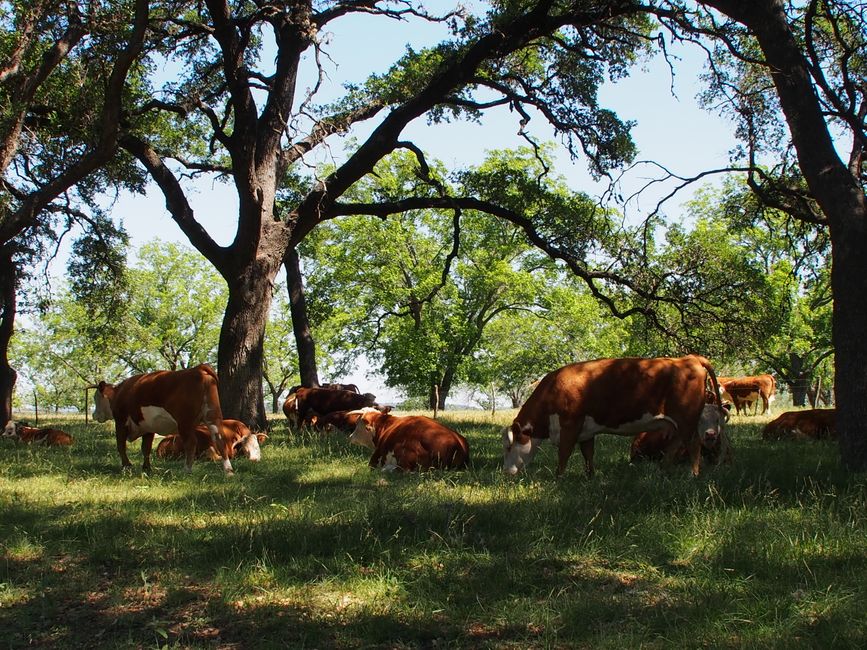
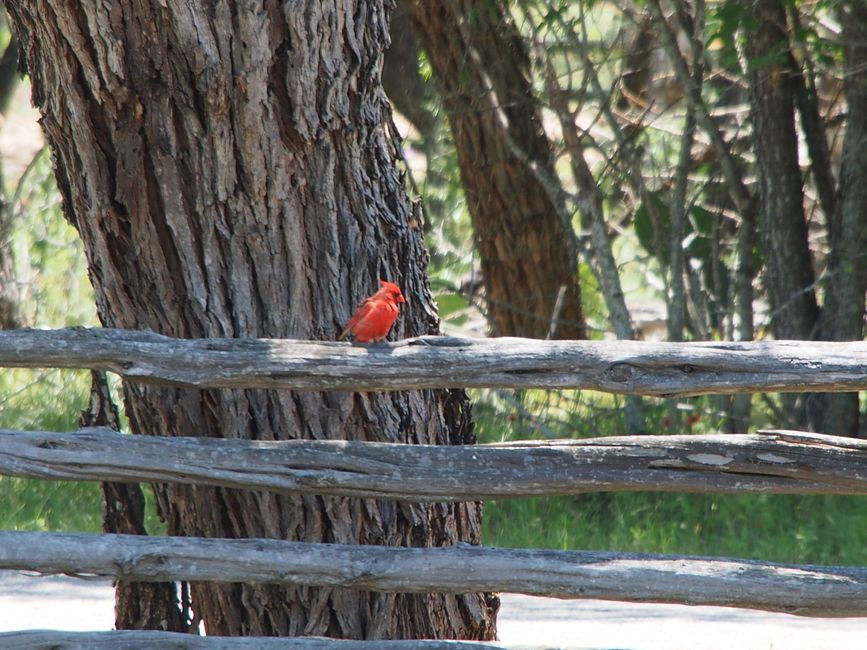
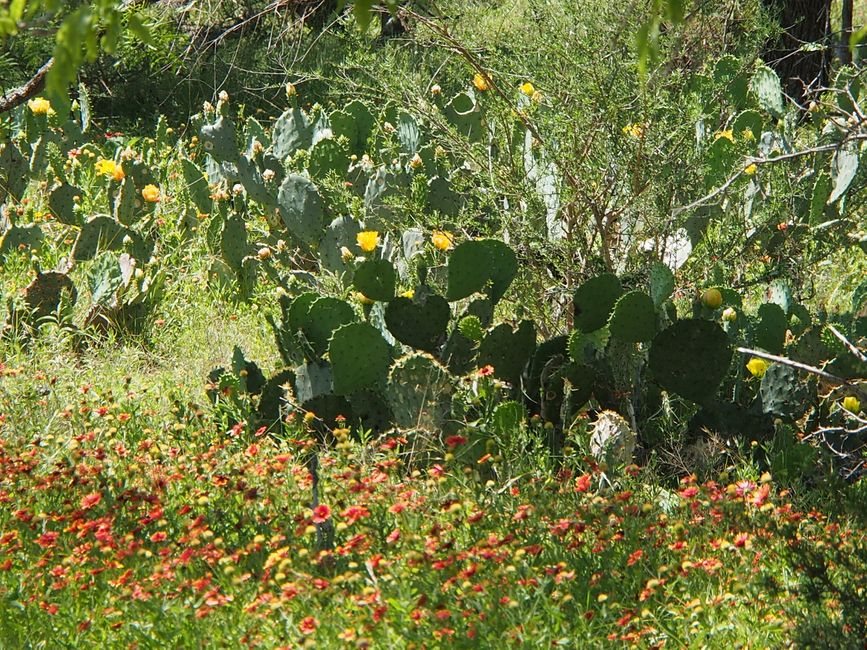
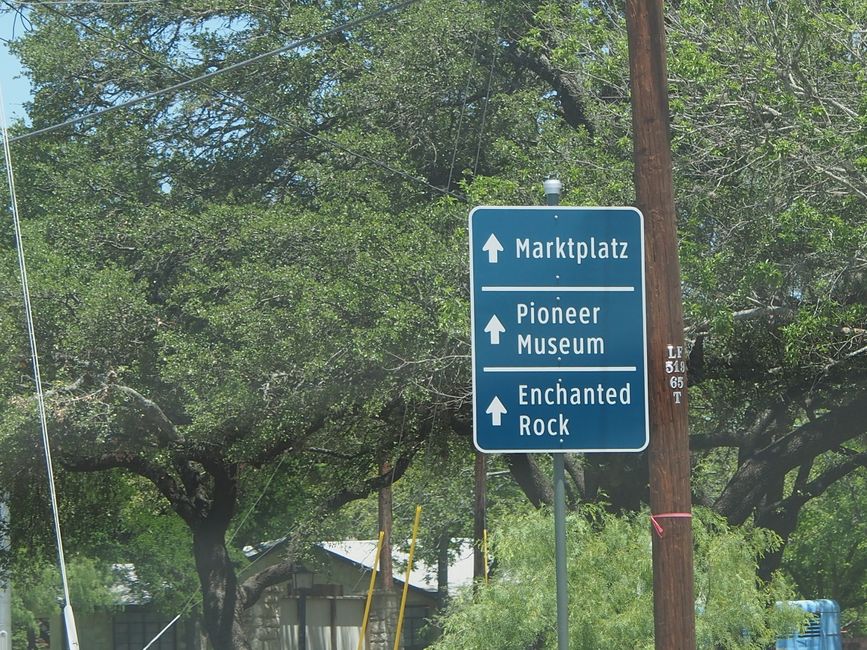
समाचार पत्रिका के लिए सदस्यता लें
Thursday, May 15, 2014
Two weeks have passed today. We bravely get up before 8 o'clock in the morning and manage to have breakfast for the first time, which is not a big revelation (so we haven't missed much in the last two days). At 9:00 a.m. we set off towards Fredericksburg.
Our route takes us back on Highway 290 - now to the west - and our first destination is the LBJ Ranch near Stonewall.
The town of Johnson City already testifies to the presence of the family of former President Lyndon B. Johnson. After the assassination of Kennedy in 1963, LBJ came to power for two years and was re-elected for four more years in 1965. Here in Stonewall are the grandparents' house, his birthplace, the house where he lived until his death in 1973, and also the small family cemetery on this property. His wife Claudia decreed that after her death (2007), the property with the houses, including their own residence, should be made accessible to the public. Fortunately, we can drive ourselves and do not have to take a tour.

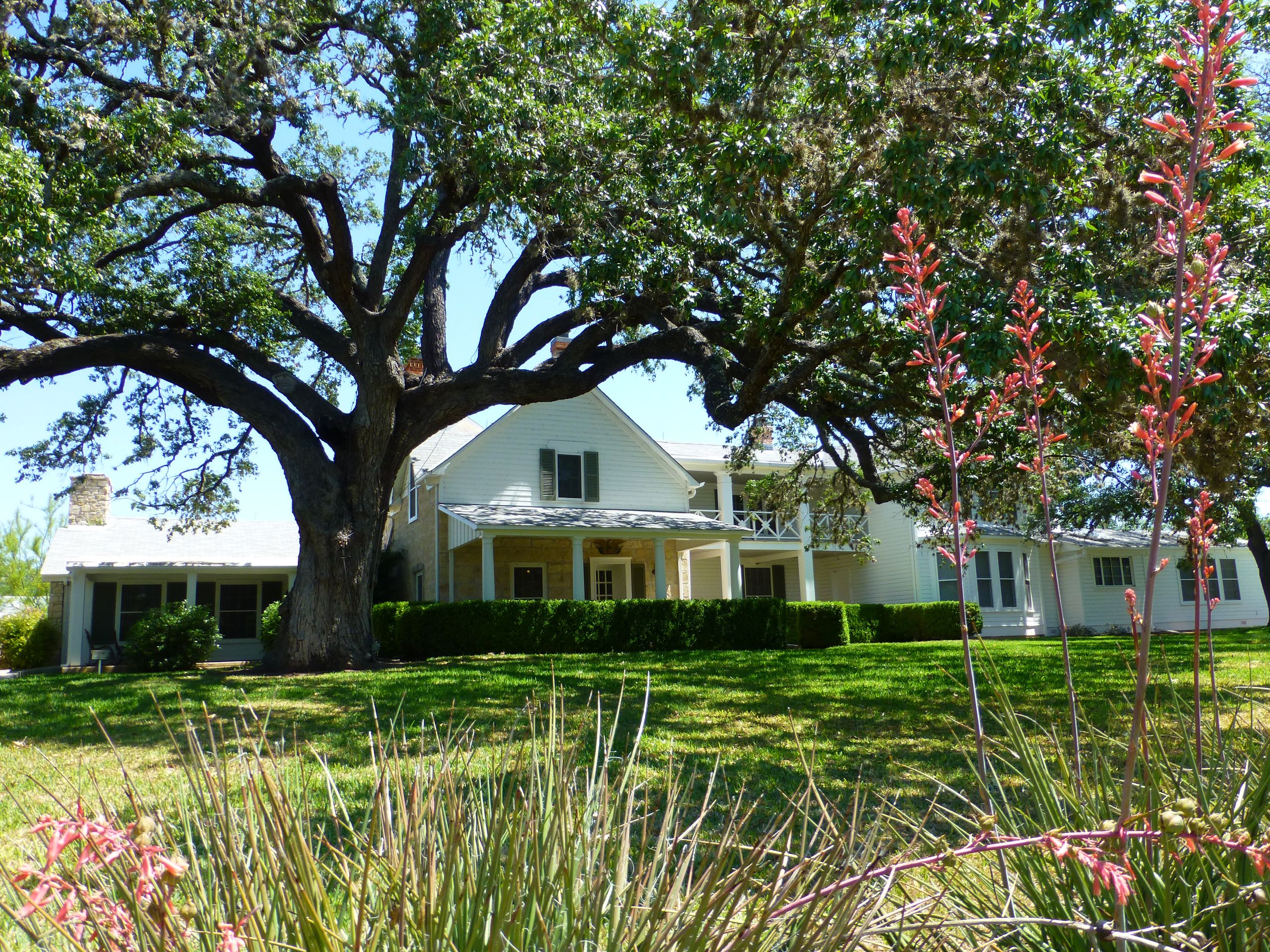
The path leads through the countryside, along cattle pastures and the aforementioned family cemetery, an air strip for the presidential plane (LBJ was the first US president with his own airplane, which is also on display here and is a mini version of today's Air Force 1).
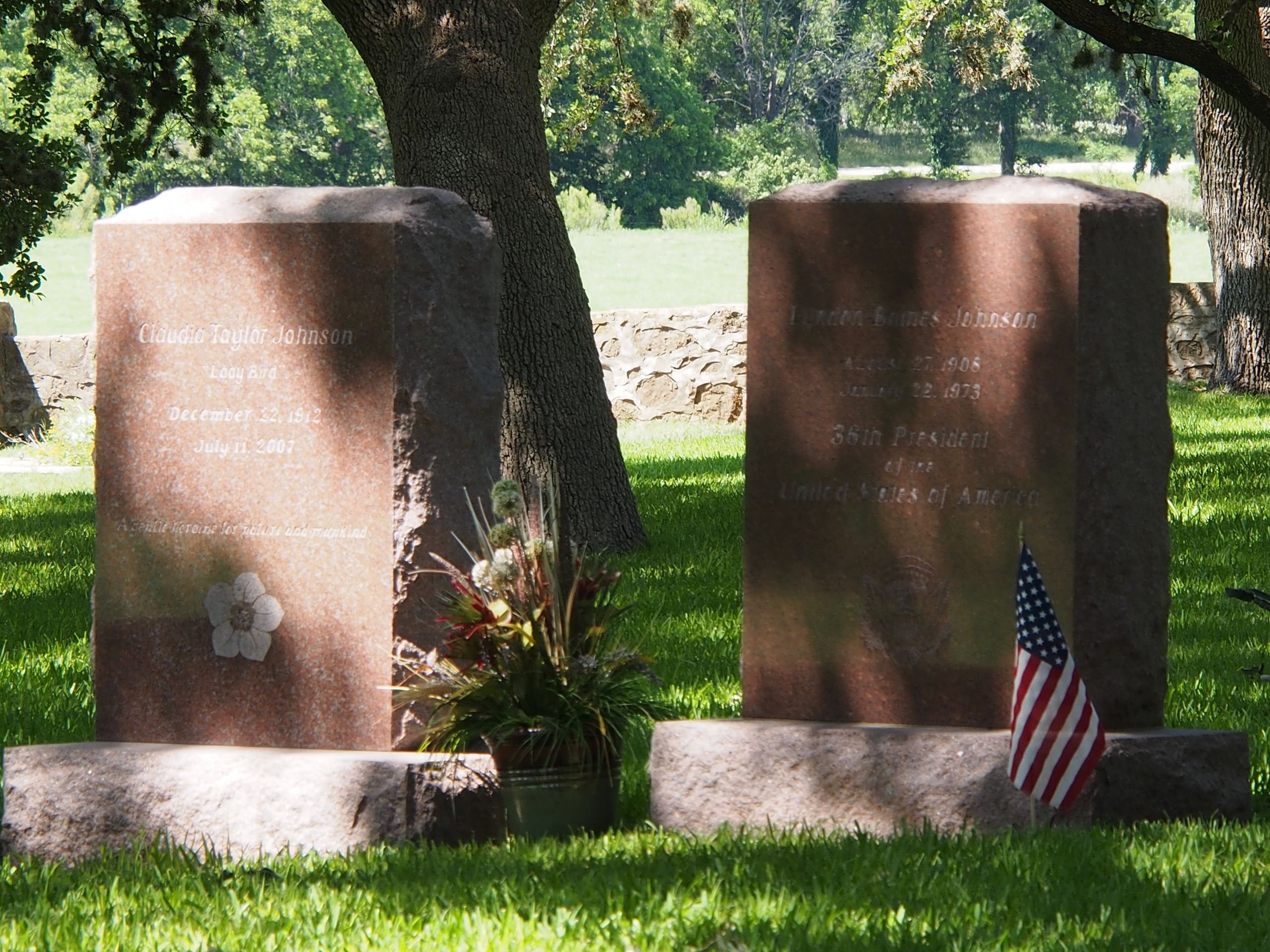

In the back of the pastures is a stable that can also be entered. All in all, not very exciting. So we continue without visiting LBJ's home and head to the Beckmann-Sauer Ranch, which is not far from the Johnsons. It is a working ranch - but somehow the term is quite overused, because it is more like a museum. So we move on.

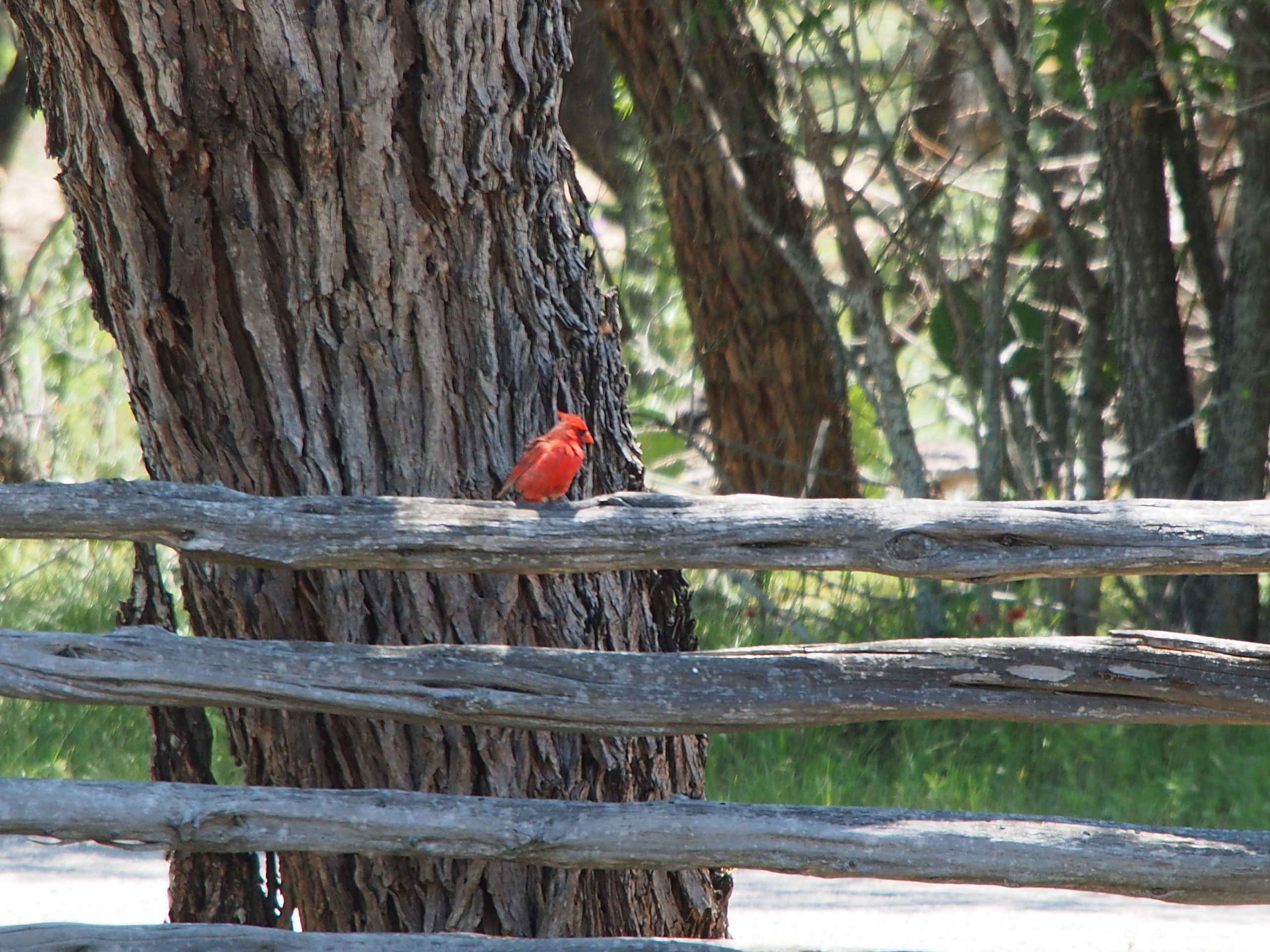
On Highway 290, there are now many signs for "Peaches" and many wineries are signposted. We get a sensational peach ice cream with huge pieces of fruit in creamy vanilla ice cream. Incredibly delicious!
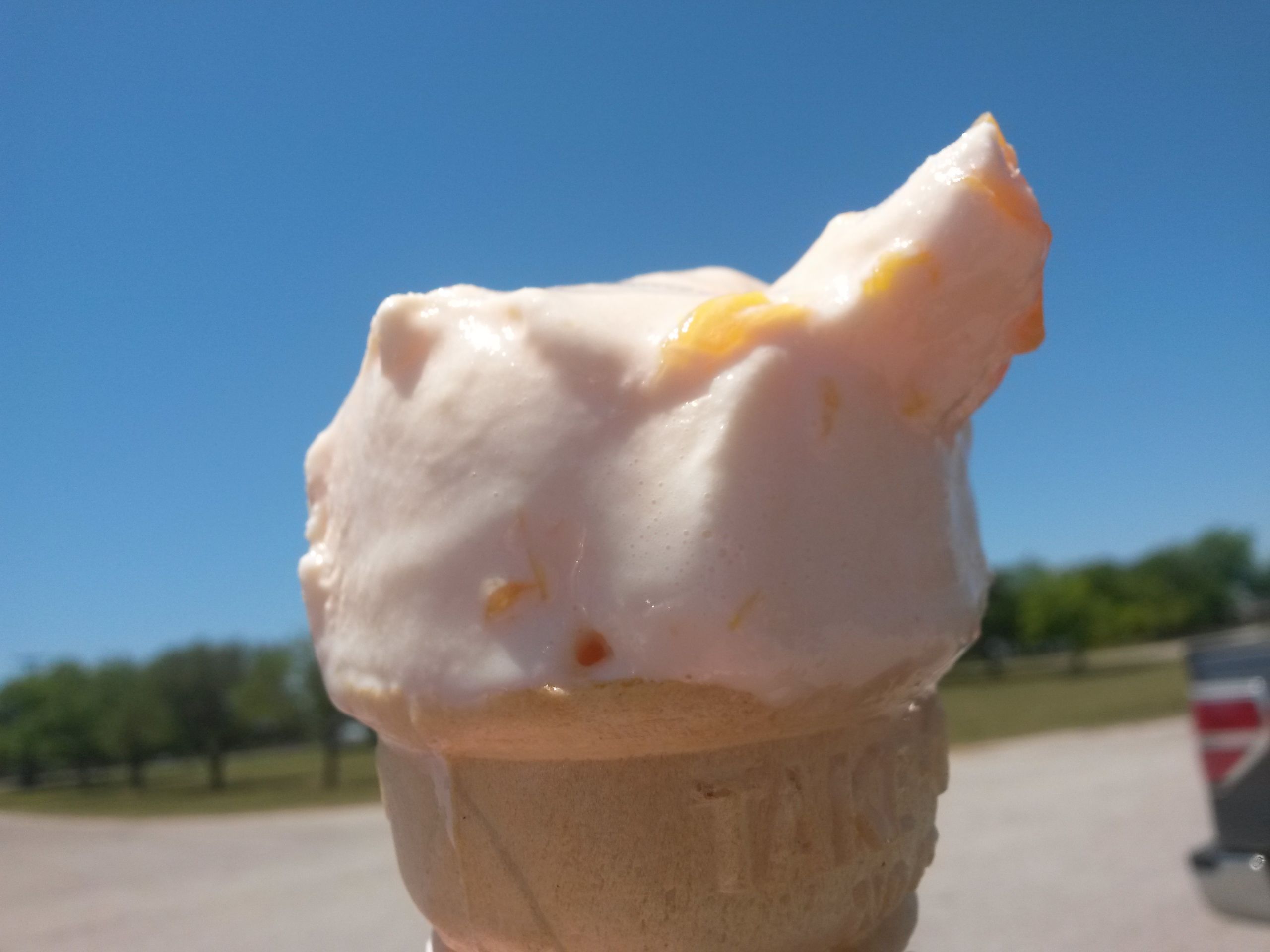
20 minutes later we reach Fredericksburg. On the market square stands the round "Vereinskirche", which actually houses a small museum.

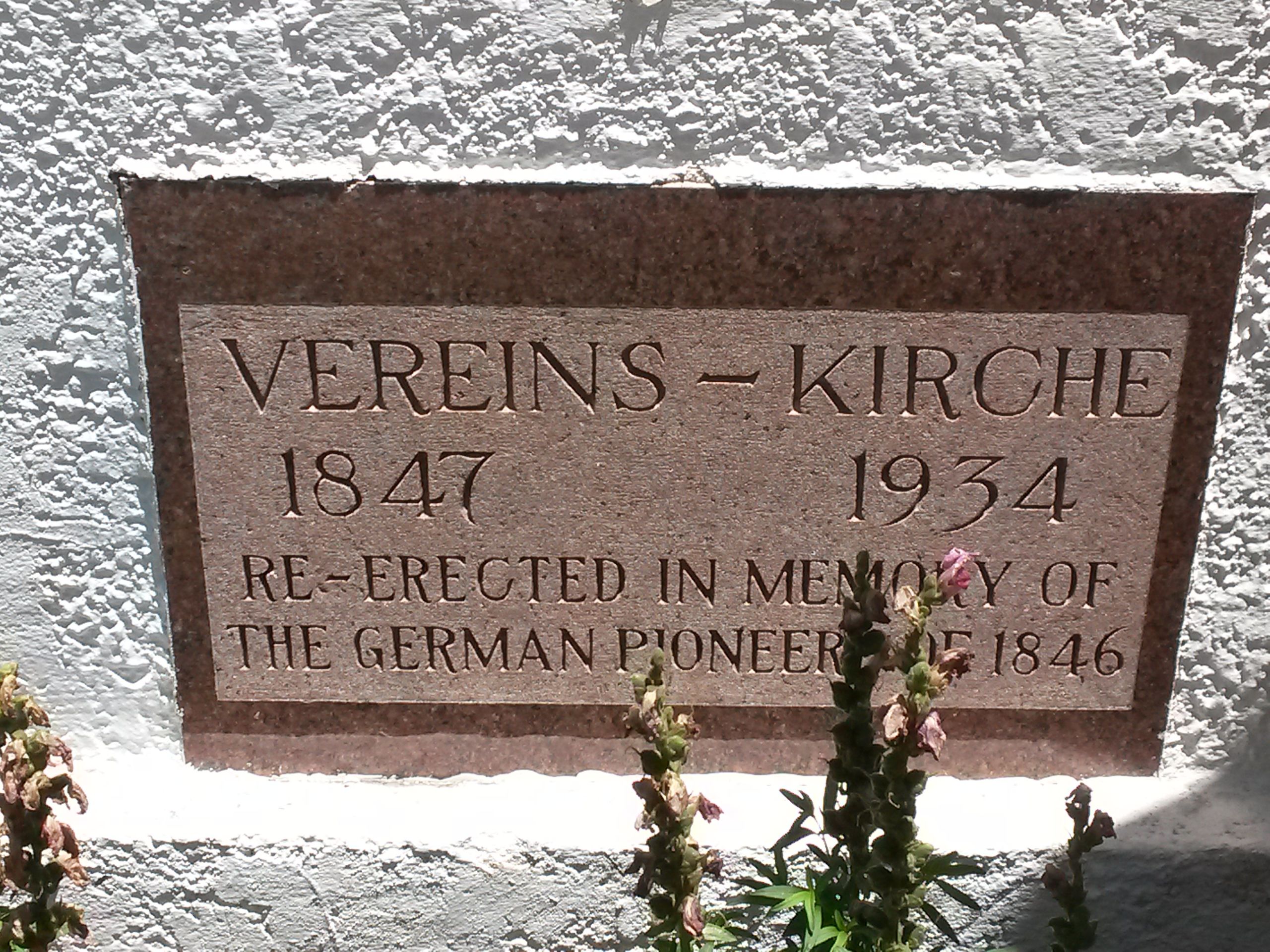
In the garden behind it, posters commemorate some Germans who were important to the city. And there is a monument to Herr von Meusebach, which shows him during the finalization of the treaty with the Comanches. Incidentally, it is the only treaty between whites and Indians that is still in force and respected to this day! Von Meusebach is therefore highly regarded by the First Nation.
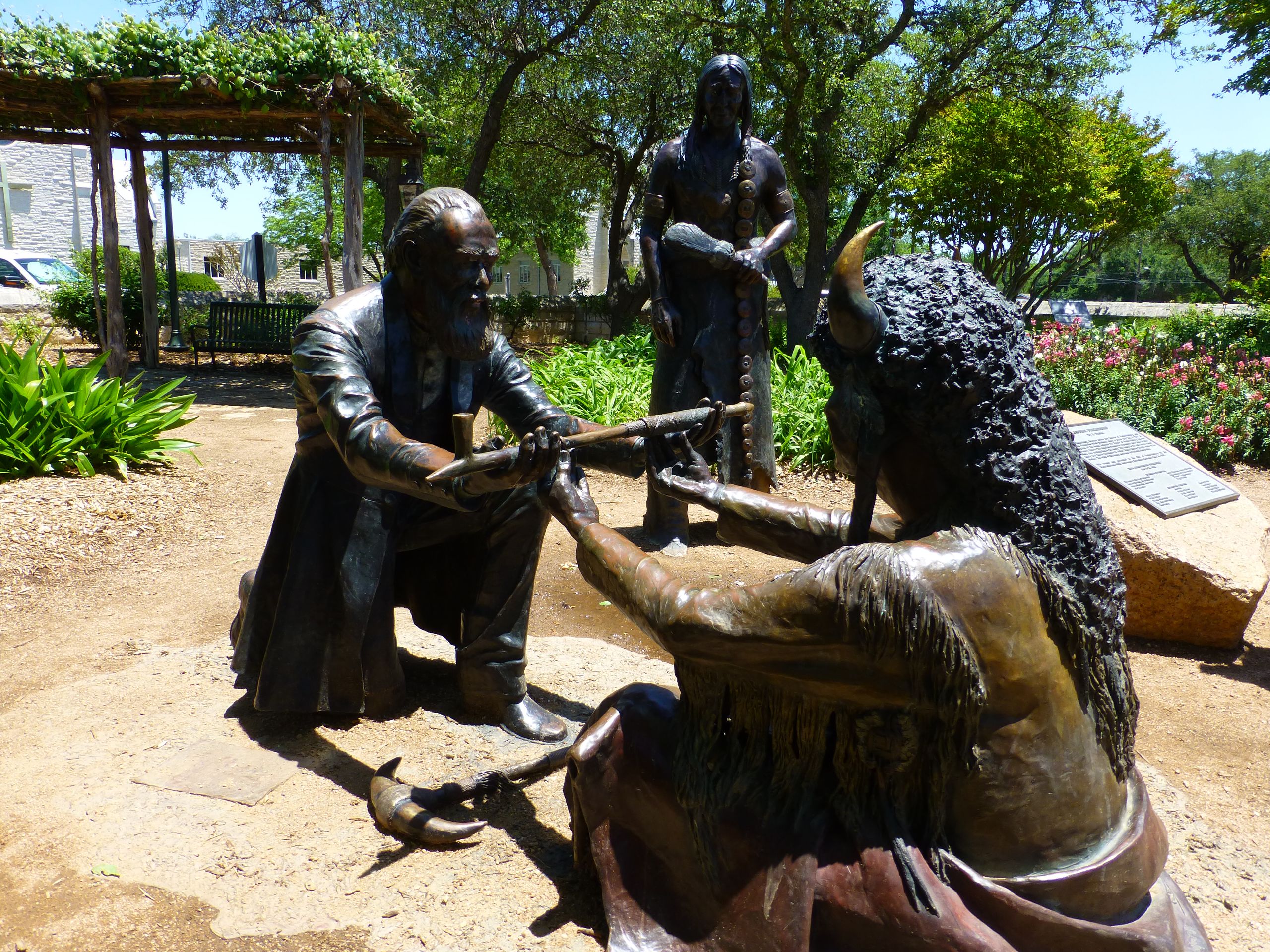
Wikipedia writes about it: "In 1845, Meusebach was appointed successor to Carl Prince of Solms-Braunfels as general commissioner of the Society for the Protection of German Immigrants in Texas, and in May 1845 he went to Texas on behalf of this society. There he founded the town of Friedrichsburg (Fredericksburg) in Gillespie County, Texas in 1846, which he named after Prince Friedrich of Prussia (....). After military conflicts with the Comanches, he concluded peace with the Indians on March 2, 1847 at San Saba, signed his famous peace treaty on May 9, 1847, and thus not only provided a solid foundation and security for the two major German settlements in Texas, New Braunfels and Fredericksburg, but also enabled further settlement of the country, so that as a result, the counties of Concho, Kimble, Llano, Mason, McCulloch, Menard, San Saba, Schleicher, Sutton and Tom Green could be founded."
Meusebach was inspired by William Penn's Indian policy in Pennsylvania and the prerequisites for his successful negotiations with the Indians were certainly his positive attitude and friendly behavior towards them. After the peace negotiations with the Comanches, Meusebach said: "When my people have lived with you for a while and when we know each other better, it may happen that some of them would like to marry. Soon our warriors will learn your language. If they then wish to marry a girl from your tribe, I see no obstacles at all, and our peoples will become much better friends. .... My brother speaks of a barrier between the red men and the palefaces. I do not esteem my red brothers any less because their skin is darker, and I do not think more of the white people just because their skin is lighter."
In 1936, a memorial stone was erected at San Saba (San Saba County) with the following text: "On this site a treaty of peace was agreed upon, March 1-2, 1847, between twenty Comanche chiefs and the German colonists represented by Otfried Hans Freiherr von Meusebach (1812–1897), who became a citizen of Texas under the name of John O. Meusebach...this treaty was never broken."
We stop at the Old German Bakery to grab a bite to eat. It is decorated with pictures from Berlin, but it doesn't have good bread or a cozy atmosphere, but a cute menu with many schnitzels.

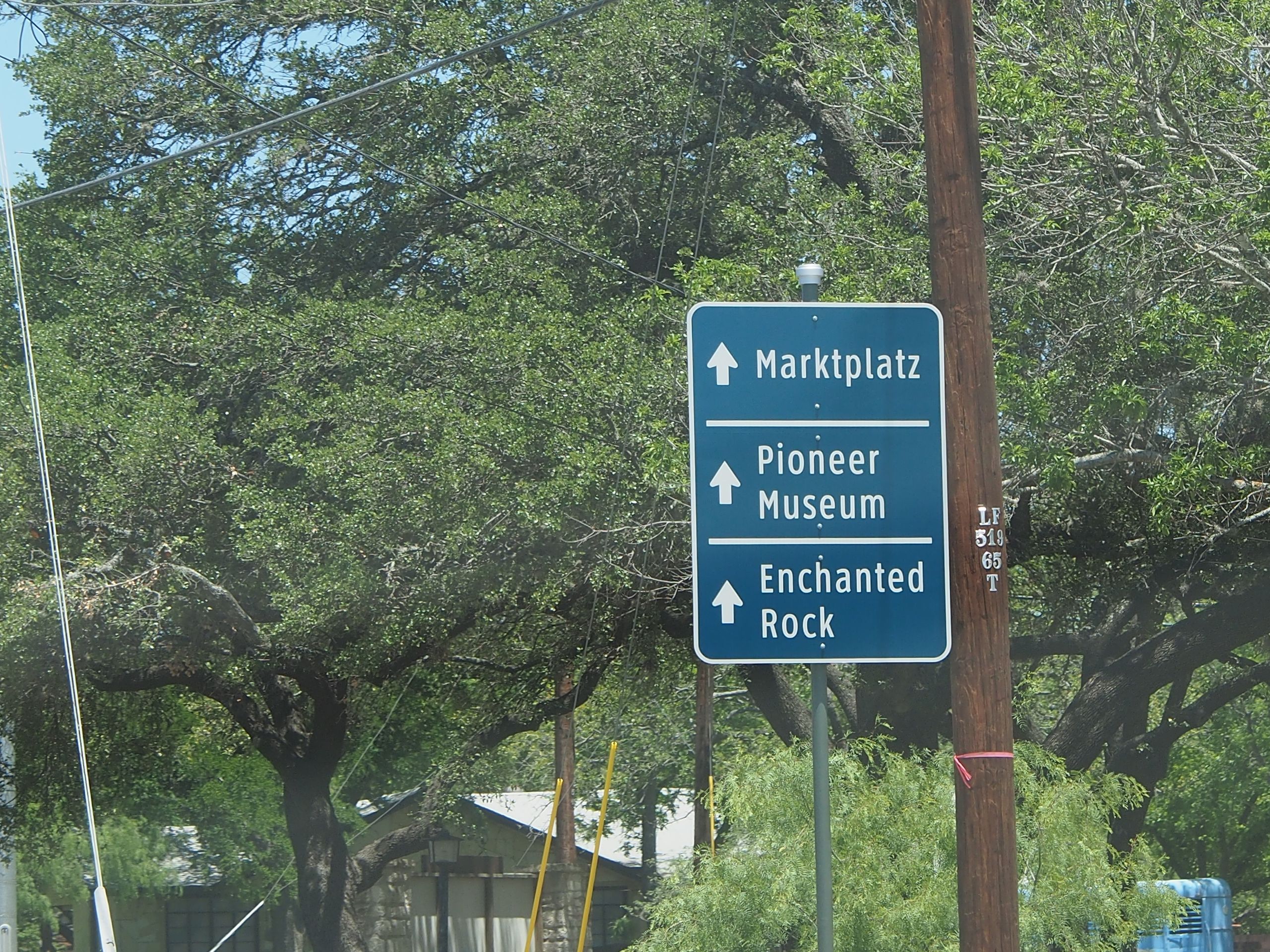
It is hot, our gummy bears have long since melted into a single homogeneous mass in the glove compartment.
We drive around Fredericksburg a bit and look at the old houses. Not only the Sunday Houses are worth seeing, but something I haven't seen anywhere in the US or anywhere else in the world. The Germans built these small houses, which usually had only one room and a kitchen, around their church and only used them on Sundays.

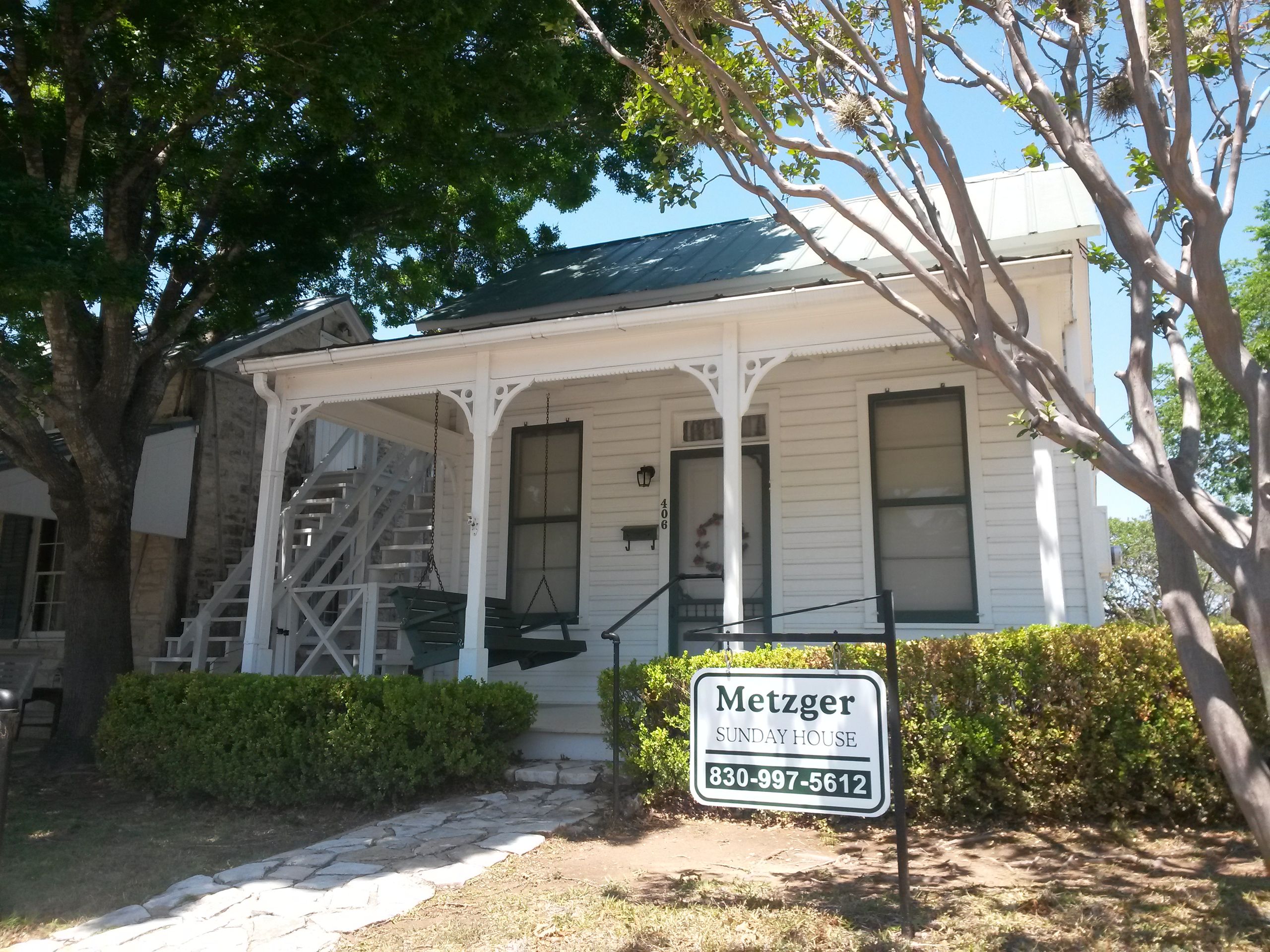
Then they came with their carriages from the villages to Fredericksburg to go to church. And in order not to have to drive home for another 2 hours after church, you could eat in these houses with all family members. Only in the afternoon did you drive back to the farm. Today these mini houses are either monuments or beautifully renovated and inhabited. However, they have been complemented by extensions.
Further on is the St. Mary's Church, a Catholic church from the mid-19th century. Inside, it is completely simple and outside it looks very old.
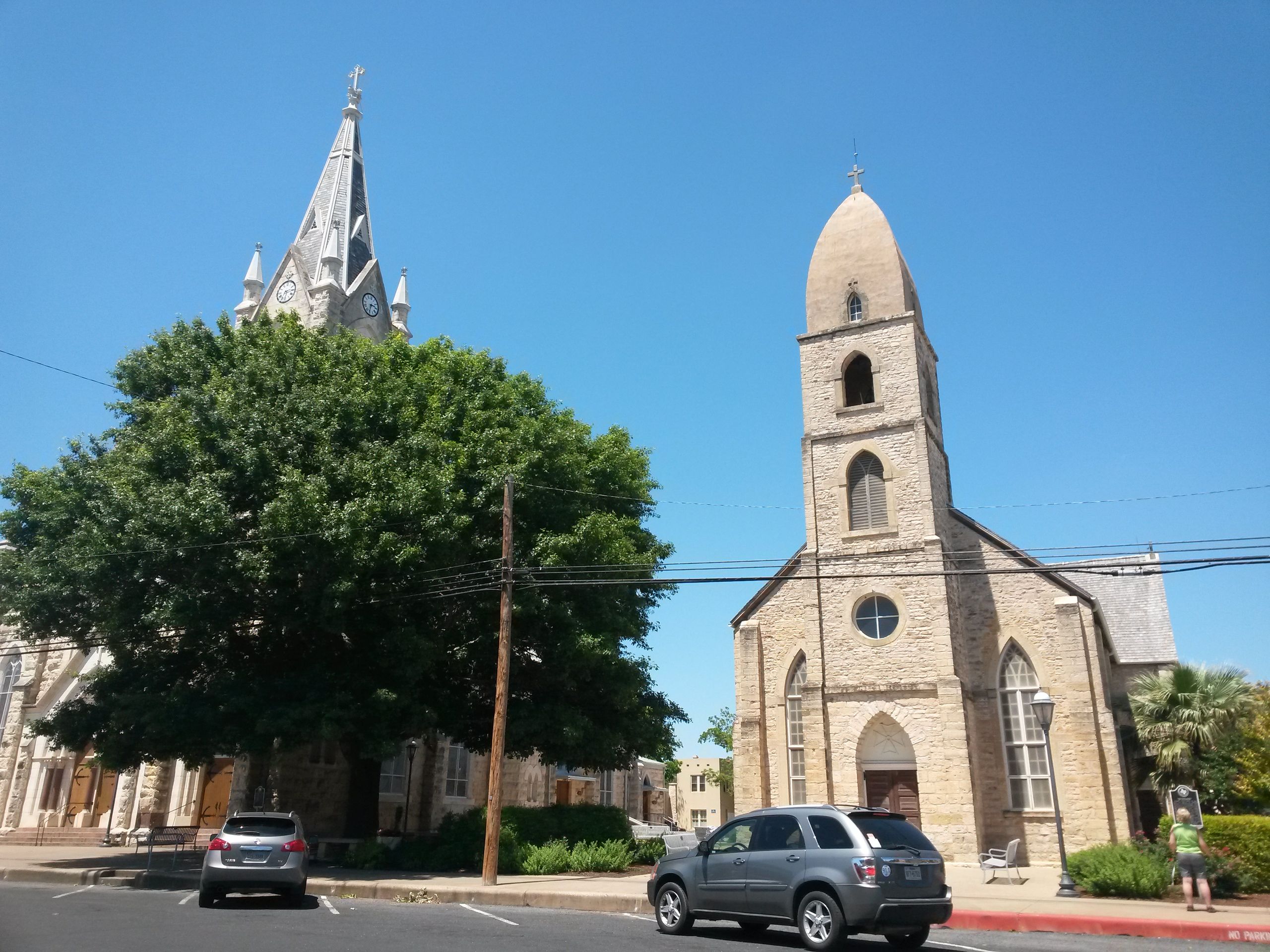
Now we leave the hot Fredericksburg and head east on Highway 46 towards New Braunfels. At 6:00 p.m. we check into the Sleep In and immediately get back in the car to drive to Gruene, which is about 5 km away.
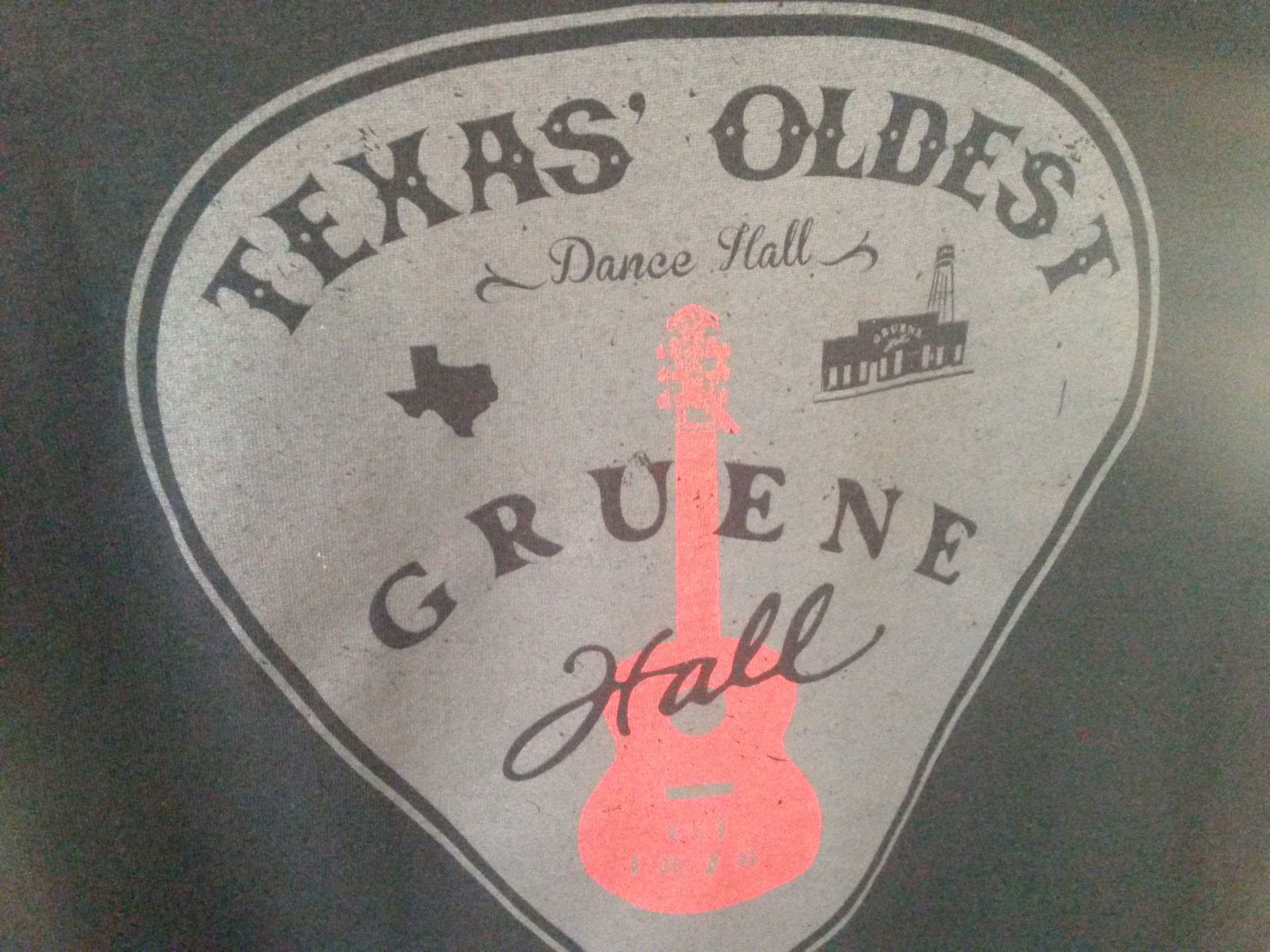
Even though we always say "Grüne", the Texan who knows the place pronounces it correctly as "Green". However, no one can explain why it is spelled with "ue". The cute town practically consists of 3 streets, a few partially eccentric shops, and some restaurants.

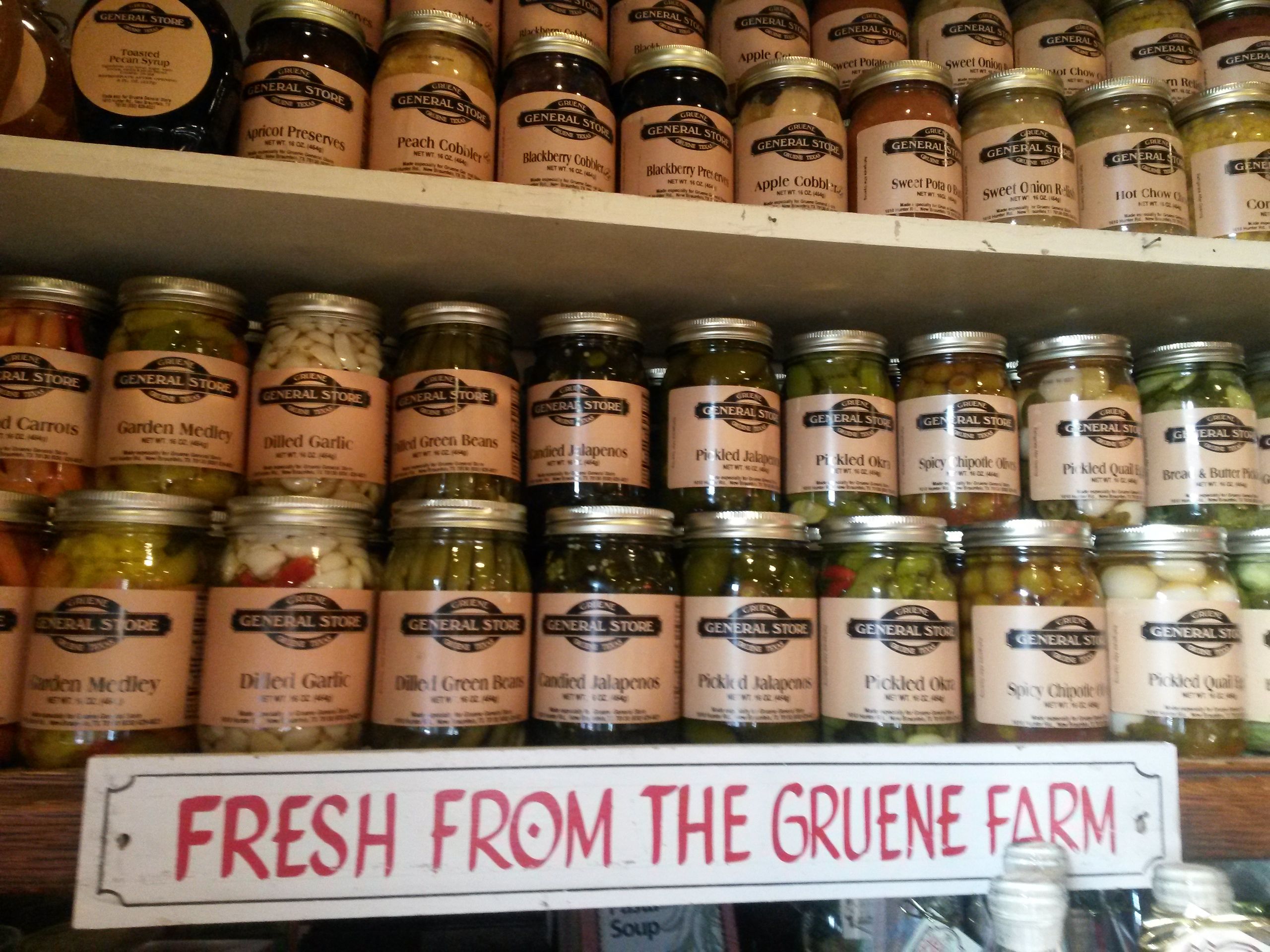
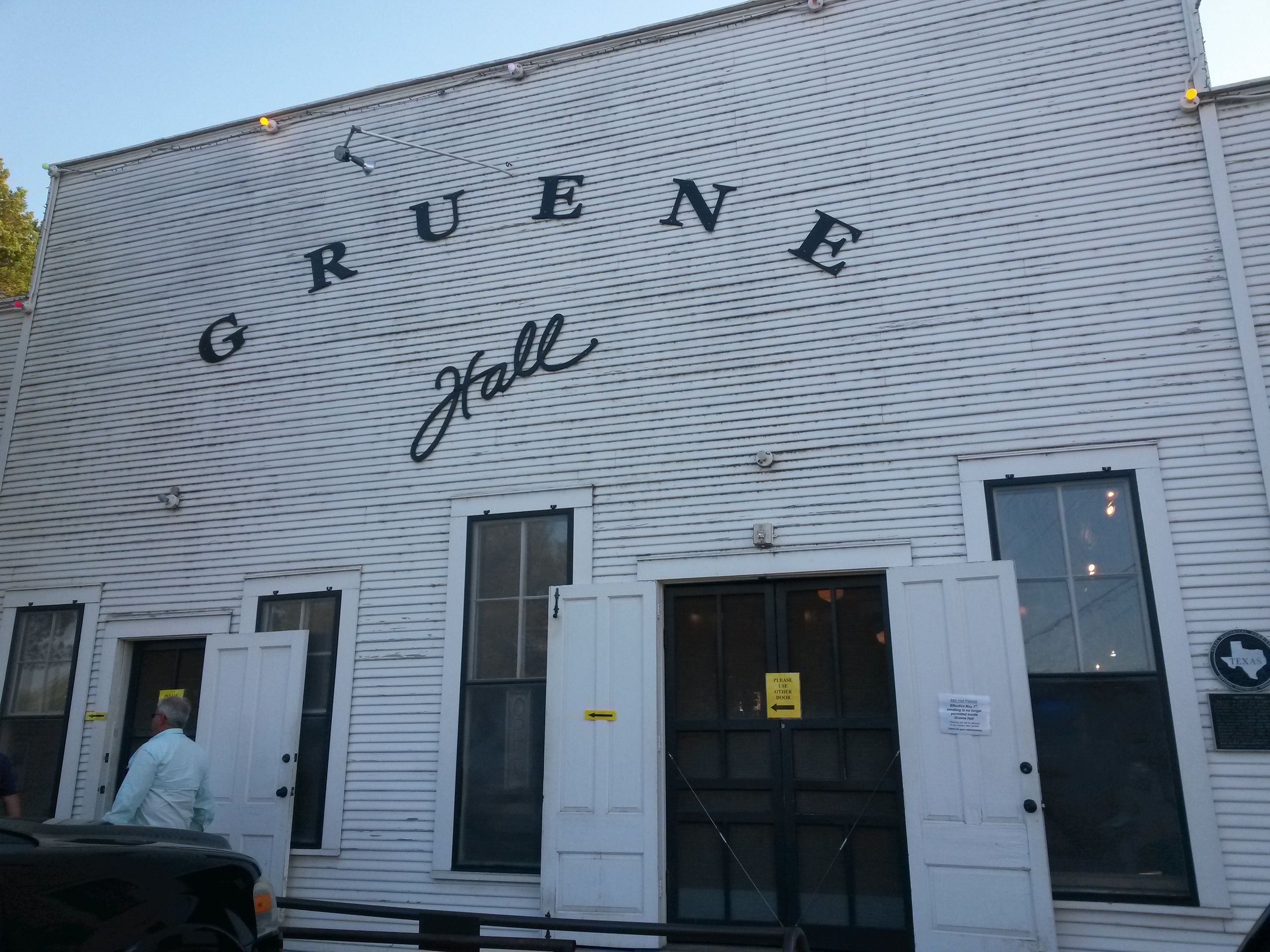
There are tables and benches under trees that are well occupied because the local wineries have invited people to wine tastings here. I try a wine and immediately decide to continue drinking Budweiser.
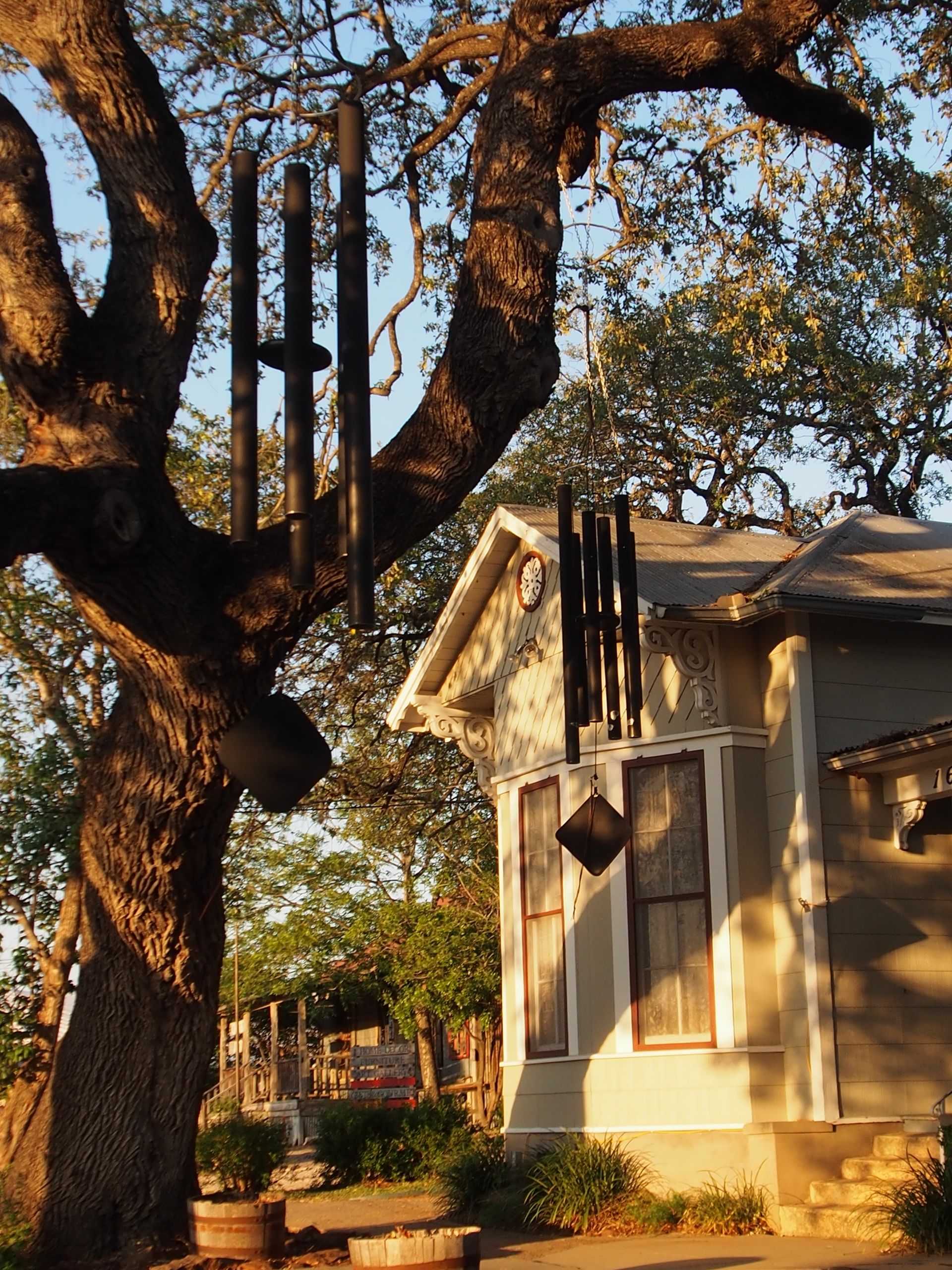
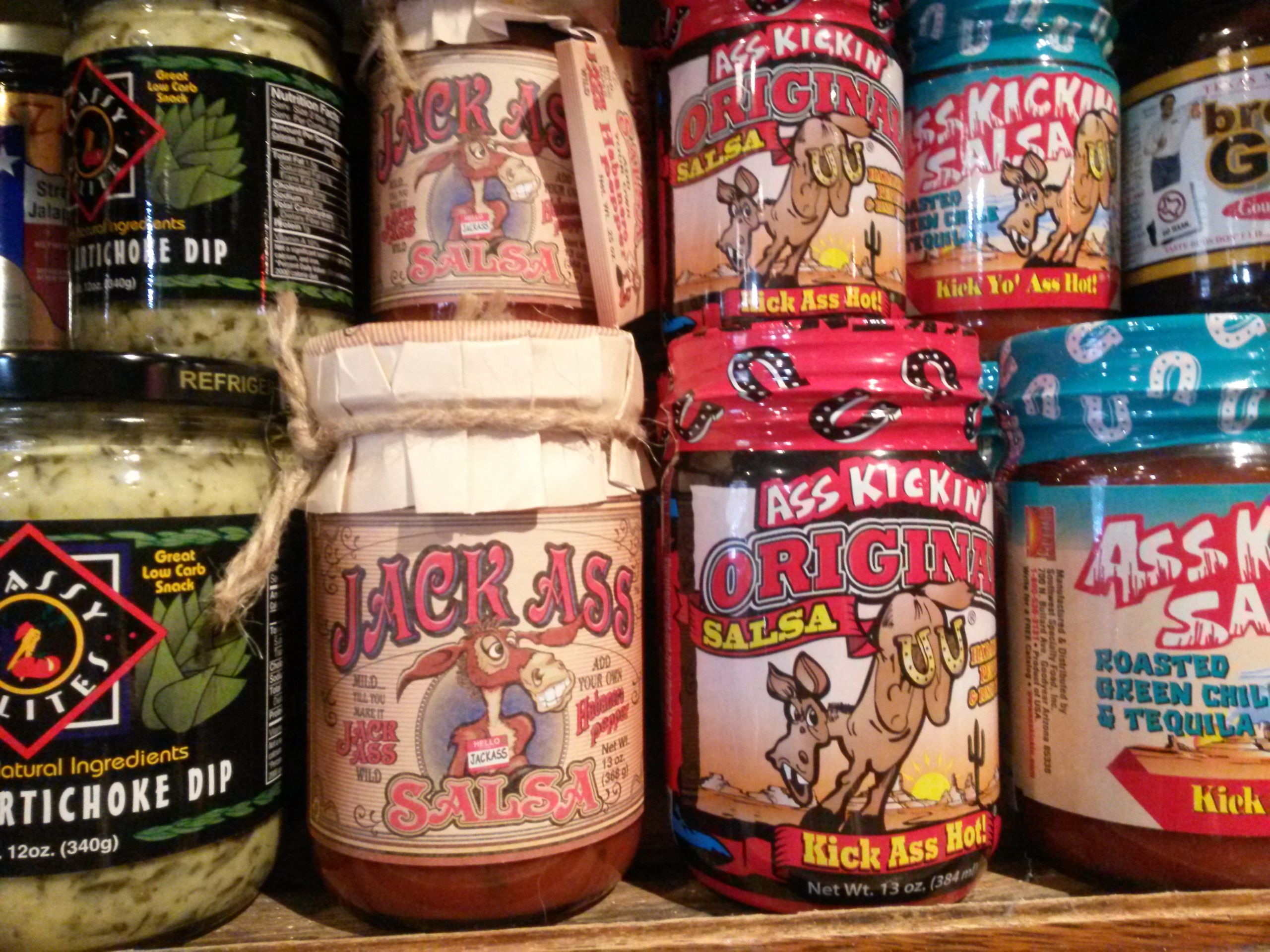
We stroll around and of course go to the Gruene Dance Hall. This dance hall is the largest in Texas and is already a tourist attraction. The building has a dance floor that is over 500 square meters and has established itself as a concert hall in recent times. Built in 1878 by Heinrich D. Gruene, this relic from olden days has held its own to this day. Country greats like Willie Nelson have performed here, and unfortunately, tonight some unknown female musician is performing live and everything is sold out. So we can only see the famous dance hall from the outside and not see a few hours of Two-Step dancing again. Someone who wants to sell two tickets tells us that the artist Patty XY doesn't play country music, so we don't buy the tickets from him.
We stroll around the area, look down from dense greenery at the Guadalupe River"Oma Gruene's Secret Garden", get a beer, and listen to some musicians on a small stage until it gets dark.

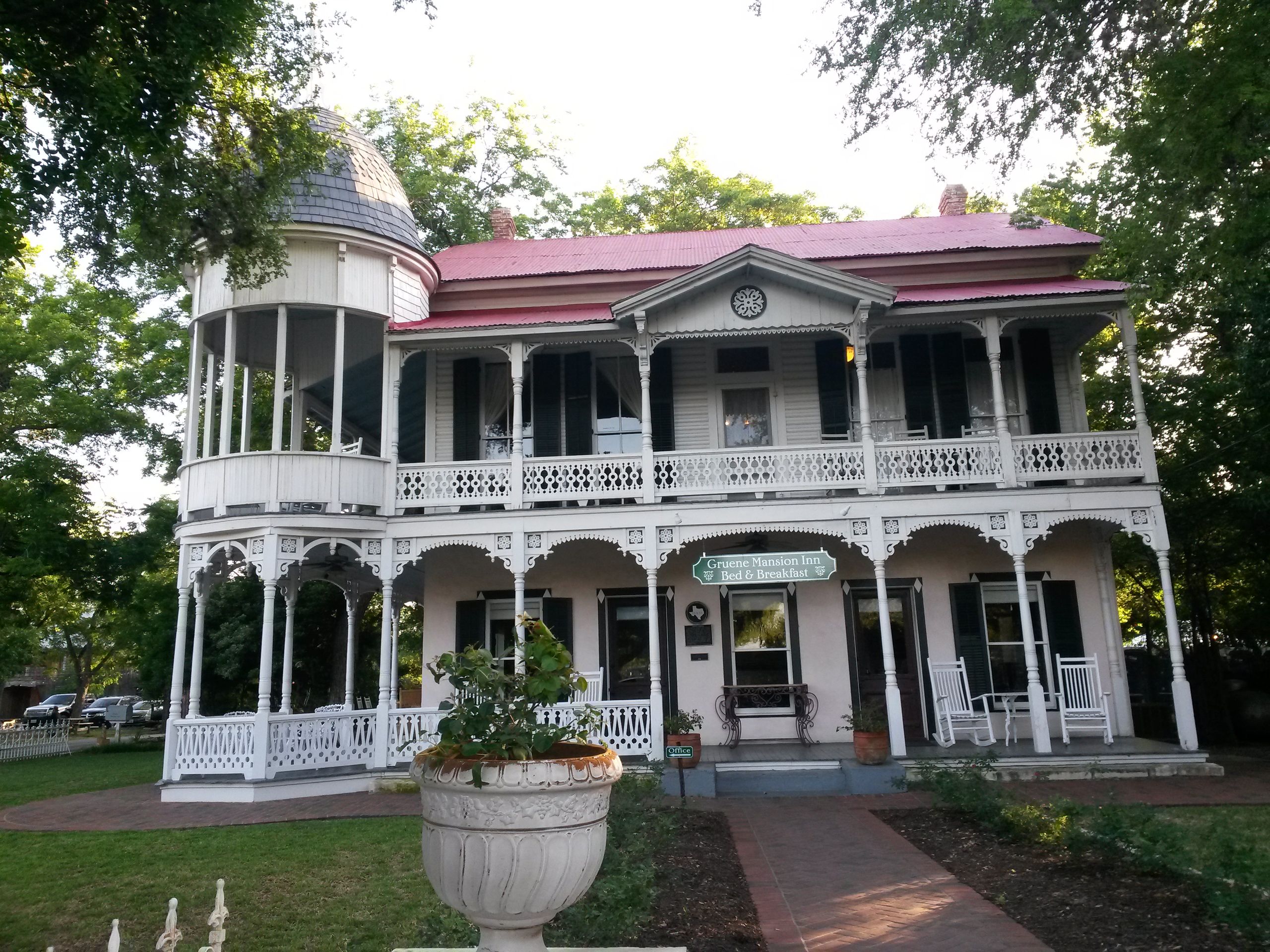
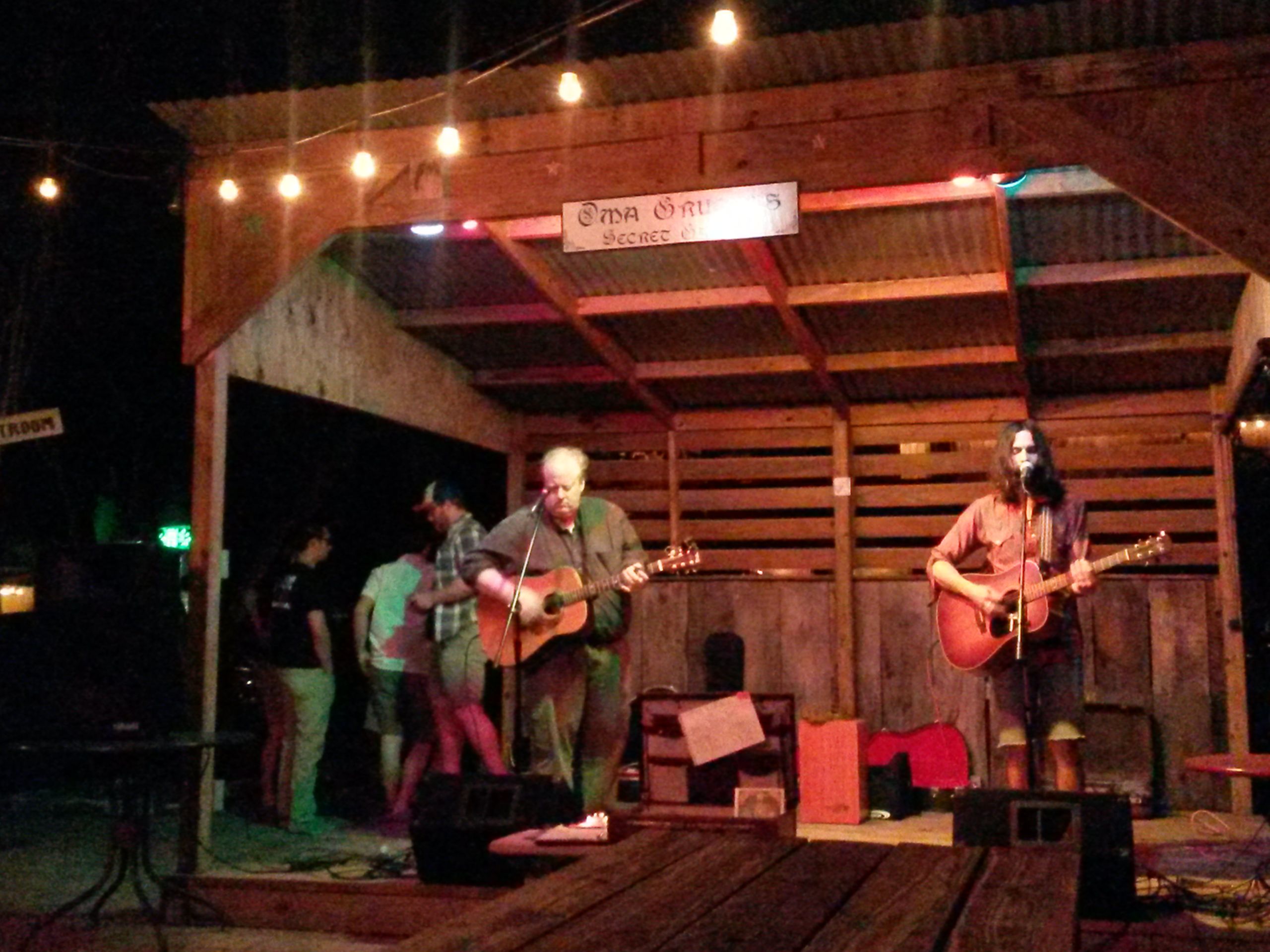
A beautiful, cozy evening. Next to us is a sign that reads: "Das Leben ist schöen" (Life is beautiful).

Distance traveled: approximately 170 miles / 274 km
समाचार पत्रिका के लिए सदस्यता लें
उत्तर
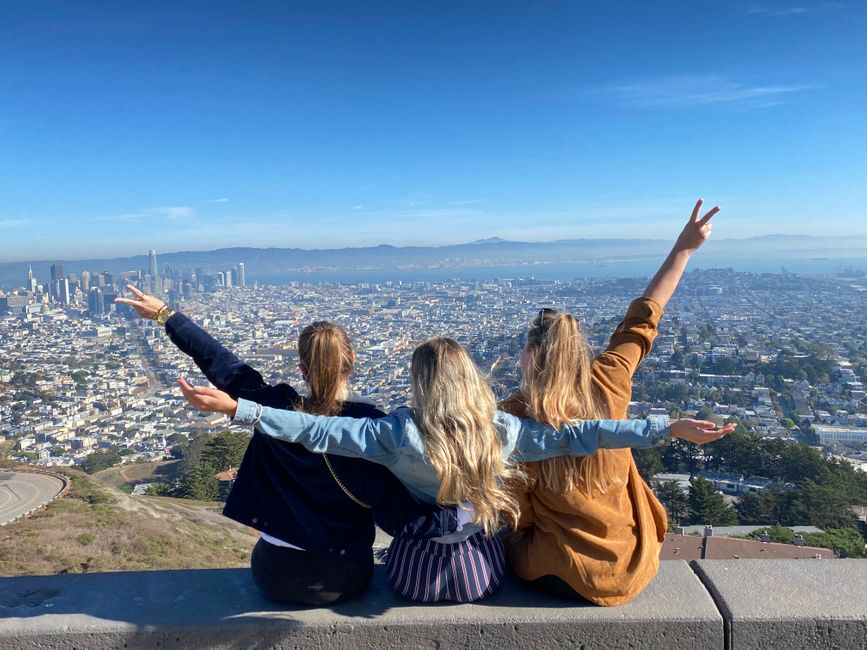
यात्रा रिपोर्ट यूएसए
